2024 SAA Fellows and Award Recipients
The Society of American Archivists (SAA) honors the accomplishments and innovations of more than two dozen outstanding individuals and organizations at its hybrid conference ARCHIVES*RECORDS 2024 on August 15–17. Award categories include outstanding contributions to the archives profession, superior advocacy and public awareness initiatives, writing and publishing excellence, and scholarships and travel awards.
Congratulations to the following 2024 recipients!
Archival Innovator Award: Indigenous Archival Training Program

The Indigenous Archival Training Program, a program aimed at centering Indigenous stewardship practices in archives, is the 2024 recipient of the Archival Innovator Award given by the Society of American Archivists (SAA). The Archival Innovator Award recognizes an archivist, a group of archivists, a repository, or an organization that demonstrates the greatest overall current impact on the profession or their communities.
The Indigenous Archival Training program developed a series of free, educational "Indigenizing Archival Practices" workshops aimed at Tribal archivists. Initially conceived by SAA’s Native American Archives Section, the idea went from a $30k to $100k proposal with support from the Mellon Foundation. The workshops enabled archival training for archivists who often lack access to formalized professional training; embodied principles and best practices driven by Indigenous values and traditional stewardship practices of communities; and built a network of Tribal archivists and Indigenous knowledge experts to support each other in this work.
The pilot for the program took place in the fall of 2023. Success was immediately evident in the number of people who worked to make this program a reality, adding on-site and live-streaming workshop units. This team of experts iteratively developed and tested the structure and content of indigenized archival training with the goal of developing a formal certificate program in the future.
Since all workshop participants work on building collections and archives from the ground up in their community, many shared how the workshops provided a safe place to learn, build new skills, and provide networking support. The program structure and the multiple modalities (in-person and virtual) allowed them to engage in different ways. Many participants are excited to share this information with their communities and Tribal Councils.
This important work was completed with a large number of collaborators, including PI Rana Salzmann; Co-PIs Selena Ortega-Chiolero and Diana Marsh; Instruction Lead Vina Begay; SAA Native American Archives Section core team Eric Hung, Lotus Norton-Wisla, Gena Peone, Liza Posas, Jonathan Pringle, and Melissa Stoner; additional NAAS member planners Rose Buchanan, River Freemont, and Rachel Menyuk; student evaluators Brionna Badoni and Kelley Klor; Regional Coordinator Sibel Melik; On-site Host Ryan Flahive; and Instructors Vina Begay, Dawn Randozzo, Gena Peone, Denise Redbird, Jerrid Miller, Lotus Norton-Wisla, Trevor Reed, Jaime Arsenault, Sandy Littletree, and Jennifer O’Neal.
Brenda S. Banks Travel Award: Janine Smith
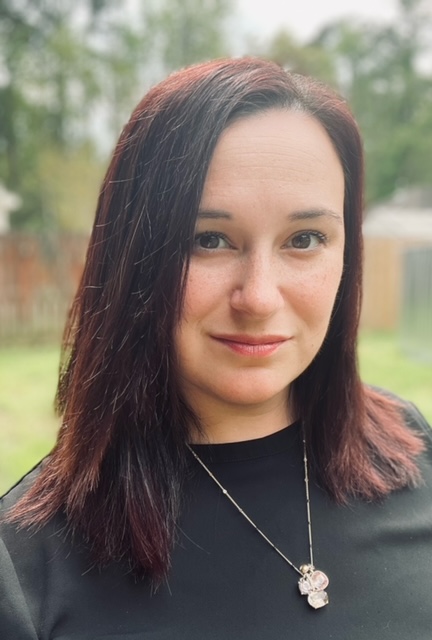
Janine Smith, university archivist and special collections registrar at Loyola University New Orleans, is the 2024 recipient of the Brenda S. Banks Travel Award given by the Society of American Archivists (SAA). Created in 2017, the award honors SAA Fellow and Past President Brenda S. Banks, who co-founded the SAA Archivists and Archives of Color Section. The award, which recognizes individuals of color who are employed in archives and show interest in becoming active members of SAA, provides attendance to the 2024 SAA Annual Meeting, as well as a complimentary one-year membership in SAA.
A Cheyenne River Lakota and an enrolled citizen in the Mandan, Hidatsa, and Arikara Nation, Smith holds an MLIS and graduate certificates in archives and special collections from the University of Southern Mississippi. She is also a certified archivist through the Academy of Certified Archivists. As the university archivist, her primary tasks include creating and organizing all records and documentation relating to the collections, acquisitions, reference, emergency preparedness and planning, teaching, and serving as a liaison to departments and on the DEI Committee. She has recently given presentations at the New Orleans Information Literacy Collective Forum, The Louisiana Library Network Users Conference, and the Society of Southwest Archivists Annual Meeting on the topic of land acknowledgments and how to make them actionable and impactful to Indigenous peoples instead of performative. Additionally, Smith is currently the editor and publications committee chair for The Southwestern Archivist, a publication of the Society of Southwest Archivists.
Of her work giving presentations, she writes, “I am most proud of this work as it is important to garner support for Native communities and one of the ways in which I can give back to my people.” The SAA Awards Committee was impressed by Smith’s enthusiasm for involvement with SAA and her ongoing pursuit of knowledge and desire to reciprocate it.
C.F.W. Coker Award: Susan P. Waide
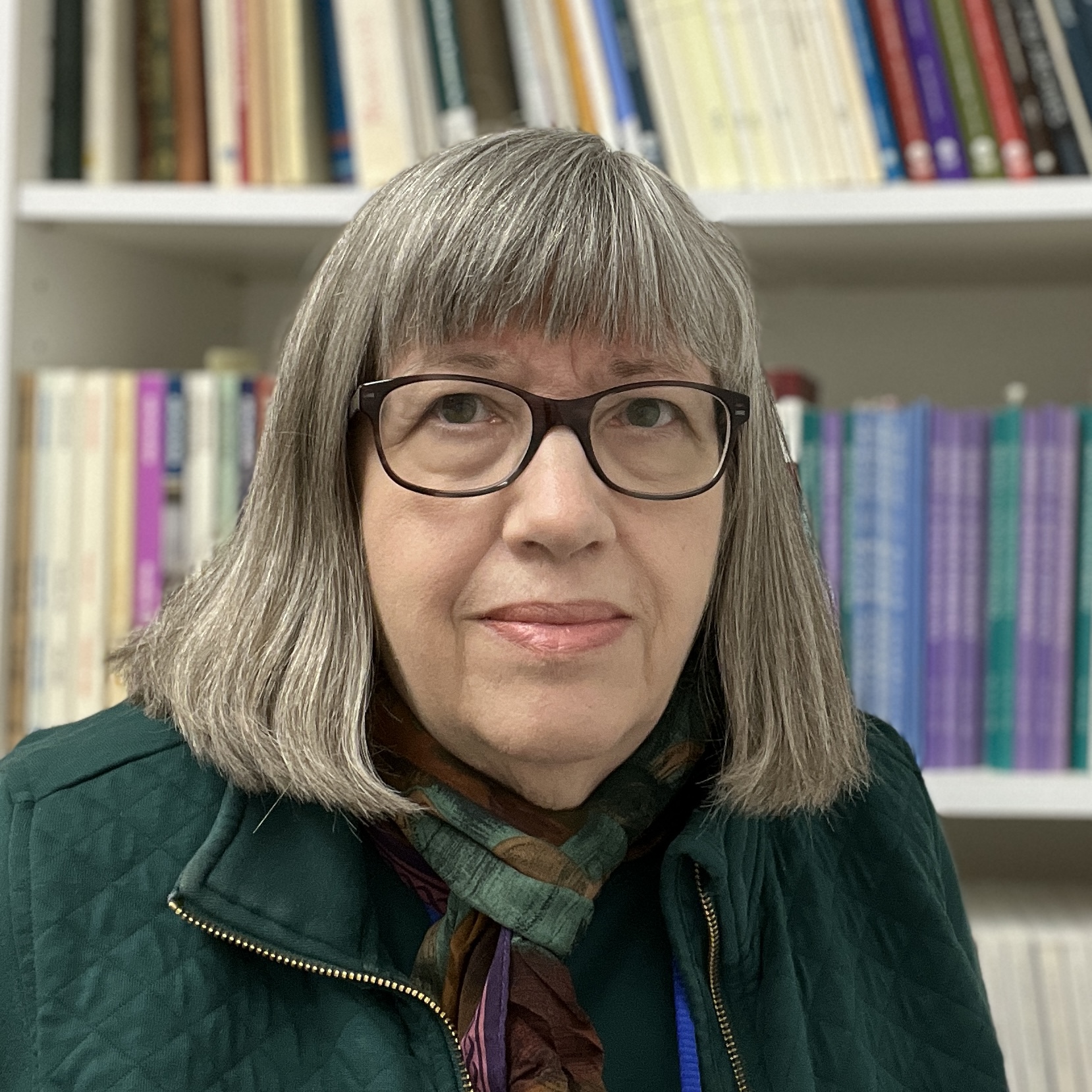
Susan P. Waide, from Special Collections Processing at the New York Public Library, is the 2024 recipient of the C.F.W. Coker Award from the Society of American Archivists (SAA) for her work on the Abraham Yates Jr. Papers finding aid. The award recognizes finding aids, finding aid systems, innovative developments in archival description, or descriptive tools that enable archivists to produce more effective finding aids. To merit consideration for the award, nominees must set national standards, represent a model for archives description, or otherwise have a substantial impact on national descriptive practice.
The Abraham Yates Jr. Papers, acquired by The New York Public Library in 1919 and held by the Manuscripts and Archives Division, represent a large volume of work from Abraham Yates Jr. (1724–1796), an Albany politician whose political career spanned the colonial, revolutionary, constitutional, and early national periods in United States and New York State history. While the collection’s series of correspondence was described in the twentieth century and digitized in 2016, Yates’s journals, writings, research materials, and later transcripts still carried box-level descriptions. At the beginning of the COVID-19 pandemic in 2020, Waide initiated the creation of a new finding aid for the collection, specifically applying Descriptive Cataloging of Rare Materials (Manuscripts), or DCRM(MSS). This descriptive standard provides guidelines for individual manuscript volumes and other items contained within a legacy archival collection. The use of DCRM(MSS) standards in this finding aid resulted in enhanced access to the materials, which were acquired over one hundred years prior. Not only did the project allow researchers to better understand the collection's contents, but it also maintained continuity with existing digital access and scholarly citations.
This project is a notable example of using DCRM(MSS) to describe the individuality of physical materials. Increasingly, there is an overlap within the world of special collections between archivists and librarians. While Describing Archives: A Content Standard (DACS) is focused on manuscript collections, DCRM(MSS) provides guidance for the cataloguing of individual manuscripts. This project illustrates a novel approach to applying the guidelines to multiple individual manuscripts within a finding aid. It serves as a strong example for other repositories seeking to complete similar projects.
Established in 1984, the award honors SAA Fellow C.F.W. Coker.
Council Exemplary Service Award: lndigenizing Archival Training team
Society of American Archivists
Council Exemplary Service Award
Honoring
INDIGENIZING ARCHIVAL TRAINING TEAM
WHEREAS the Indigenizing Archival Training (IAT) team addressed both the Society of American Archivists’s Strategic and DEIA Plans response to the Protocols for Native American Archival Materials (PNAAM), adopted by SAA in 2018, for “the need to expand the nature of the information professions to include Native American perspectives and knowledge” with an innovative, collaborative, and extremely successful program by providing archival training for Indigenous community-based archivists; and
WHEREAS recognizing many in this community lack formal MLIS or other archival training, and without resources to take part in much of the online training and such training are based in Western archival practices and theory that do not reflect Indigenous communities’ values, this program sought to address these issues; and
WHEREAS by securing a Mellon Foundation grant to pilot archival training that centered Indigenous needs and perspectives, the curriculum addressed these needs by creating an iterative, community-based certificate program. Developing a curriculum which the participants unanimously agreed is culturally suitable for their positions, the extremely successful pilot establishes a network for continued professional interaction; and
WHEREAS the program impacts SAA with 93 percent of participants having no previous involvement, and 86 percent are now interested in remaining involved. The early and continued collaboration with ATALM was integral and exemplifies the notable and synergic results of professional organization collaboration; and
WHEREAS the team’s efforts to continue the program by applying for another Mellon grant provides SAA’s ability to broaden its partnerships, improve its advocacy endeavors, and increase funding opportunities to help support organizational sustainability reflect an exemplary effort.
NOW, THEREFORE, BE IT RESOLVED that the Indigenizing Archival Training team be honored with a 2024 SAA Council Exemplary Service Award for their innovated and collaborative program responding to the need of providing archival training for indigenous community-based archivists.
Presented August 17, 2024
Council Exemplary Service Award: Archives Gig and INALJ (I Need a Library Job)
Society of American Archivists
Council Exemplary Service Award
Honoring
ARCHIVES GIG AND INALJ (I NEED A LIBRARY JOB)
WHEREAS, Archives Gig (founded by Meredith Lowe in 2010) and INALJ (I Need a Library Job—founded by Naomi House in 2010) have been invaluable professionally-curated resources for job-seekers, hiring organizations, and researchers in the archives, libraries, and museums fields; and
WHEREAS, their passion and dedication to showcasing facets of the profession by creating job profiles, interviews, and blog posts are strongly evident and provide unique contributions to the profession; and
WHEREAS, the Archives Gig and INALJ sites are testimonies to their founders’ dedication and commitment to supporting and uplifting colleagues in their professional aspirations;
NOW, THEREFORE, BE IT RESOLVED that Archives Gig (Meredith Lowe) and INALJ (I Need a Library Job—Naomi House) be honored with a 2024 SAA Council Exemplary Service Award for their service for supporting job-seekers and career growth in the profession.
Presented August 17, 2024
Council Exemplary Service Award: Digital Library Federation’s Born-Digital Access Working Group
Society of American Archivists
Council Exemplary Service Award
Honoring
DIGITAL LIBRARY FEDERATION'S BORN-DIGITAL ACCESS WORKING GROUP
WHEREAS the Digital Library Federation’s Born-Digital Access Working Group has worked since its formation in 2017 to advance the practice of providing access to born-digital collections; and
WHEREAS the Working Group has created invaluable practical, ethical, and legal resources on providing access to born-digital cultural heritage material, including its educational offerings, its Levels of Born Digital Access, and its Legal and Ethical Considerations for Born-Digital Access; and
WHEREAS the Working Group has created and sustained a robust, forward-looking community of practice focused on ensuring that cultural heritage institutions are equipped and able to provide access to the born-digital materials in their care;
NOW, THEREFORE, BE IT RESOLVED that the DLF Born-Digital Access Working Group be honored with a 2024 SAA Council Exemplary Service Award for their exemplary work in improving access to cultural heritage materials.
Presented August 17, 2024
Council Exemplary Service Award: Librarians and Archivists with Palestine
Society of American Archivists
Council Exemplary Service Award
Honoring
LIBRARIANS AND ARCHIVISTS WITH PALESTINE
WHEREAS Librarians and Archivists with Palestine (LAP), founded in 2013, is an all-volunteer network of self-defined librarians, archivists, and information workers in solidarity with the Palestinian struggle for self-determination; and
WHEREAS LAP researches, generates educational resources, and is an advocacy organization for concerns of archives and broader cultural heritage organizations and workers in Palestine through the creation of zines, repository profiles, syllabi, and issue statements and reports, such as “Israeli Damage to Archives, Libraries, and Museums in Gaza, October 2023–January 2024”; and
WHEREAS LAP has continued to provide support and solidarity with Palestinian repositories and workers by fundraising initiatives; almost 10 years of “One Book, Many Communities” campaigns; book drives; and other initiatives to support libraries and refugees;
NOW, THEREFORE, BE IT RESOLVED that Librarians and Archivists with Palestine be honored with a 2024 SAA Council Exemplary Service Award for their ongoing advocacy work supporting archives and cultural heritage in Palestine.
Presented August 17, 2024
Council Exemplary Service Award: National Best Practices for Archival Accessioning Working Group
Society of American Archivists
Council Exemplary Service Award
Honoring
NATIONAL BEST PRACTICES FOR ARCHIVAL ACCESSIONING WORKING GROUP
WHEREAS the National Best Practices for Archival Accessioning Working Group (NBPAAWG)—comprised of Mohamed Haian Abdirahman, Christine Bethke, Bree’ya Brown, Regina Carra, Jennifer Coggins, Maureen Cresci Callahan, Rosemary K.J. Davis, Kate Dundon, Audra Eagle Yun, Kit Fluker, Matt Francis, Rosalie Gartner, Jaime Henderson, Emily Higgs Kopin, Jesse Hocking, Dawne Howard Lucas, Emily Hughes Dominick, Jordan Jancosek, Tammi Kim, Juliana Kuipers, Jasmine Larkin, Kit Messick, Brittan Nannenga, Eve Neiger, Rose Oliveira-Abbey, Meaghan O’Riordan, Margo Padilla, Cate Putirskis, Rachel Searcy, Nikki Lynn Thomas, Julia Welby, Katrina Windon, and Kelli Yakabu—was established in 2021 to develop a body of best practices for archival accessioning and to create a robust, visible community of practice; and
WHEREAS NBPAAWG was awarded funding by the Institute of Museum and Library Services’ National Leadership Grants for Libraries program and has succeeded both in raising professional awareness of archival accessioning and in developing human-centered, actionable best practices for all types of accessioning labor; and
WHEREAS NBPAAWG redefined accessioning as systemic work directly connected to core archival functions and built the best practices on the foundation of Audra Eagle Yun’s seminal work, Archival Accessioning; and
WHEREAS as NBPAAWG describes, “Accessioning best practices will provide recognition, resources, and validation for individuals and organizations performing this work and allow for more efficient and effective accessioning work throughout the profession”;
NOW, THEREFORE, BE IT RESOLVED that the National Best Practices for Archival Accessioning Working Group be honored with a 2024 SAA Council Exemplary Service Award for their innovative professional standards development and accompanying community-building for the archival profession.
Presented August 17, 2024
Council Resolution Award: Astoria Edwards
Society of American Archivists
Council Resolution Award
Honoring
ASTORIA EDWARDS
WHEREAS Astoria Edwards, after being shortly hired as the Assistant Director of the Society of American Archivists (SAA) Foundation, assumed the role of Assistant Director of Governance for SAA and has performed both positions at a level of professionalism and expertise facilitating continued operations; and
WHEREAS her knowledge of association governance is heavily relied on and has protected both SAA and the Foundation from situations which could place us in liable positions; and
WHEREAS her tireless commitment to fulfilling both positions far exceeds the expectations of one saddled with an onerous workload which were performed with graciousness and humor; and
WHEREAS her tenacity in fulfilling both roles cannot be overvalued;
NOW, THEREFORE, BE IT RESOLVED that Astoria Edwards be honored with a 2024 SAA Council Resolution Award for her exemplary committment to SAA and the SAA Foundation.
Council Resolution Award: Cherie Newell
Society of American Archivists
Council Resolution Award
Honoring
CHERIE NEWELL
WHEREAS Cherie Newell has been performing two vital positions at the Society of American Archivists (SAA) for two years with a sustained level of expertise and dedication; and
WHEREAS Cherie faced the effort to modernize SAA in financial management and technology which has been a long and difficult process, involving technology upgrades, deploying new software, migrating legacy data, and developing new procedures and processes to manage SAA's finances;
NOW, THEREFORE, BE IT RESOLVED that Cherie Newell be honored with a 2024 SAA Council Resolution Award for her tenacity to address these fundamental issues that have required a level of commitment, professionalism, and expertise deserving of this award.
Distinguished Service Award: FRASER Team of the Federal Reserve Bank of St. Louis
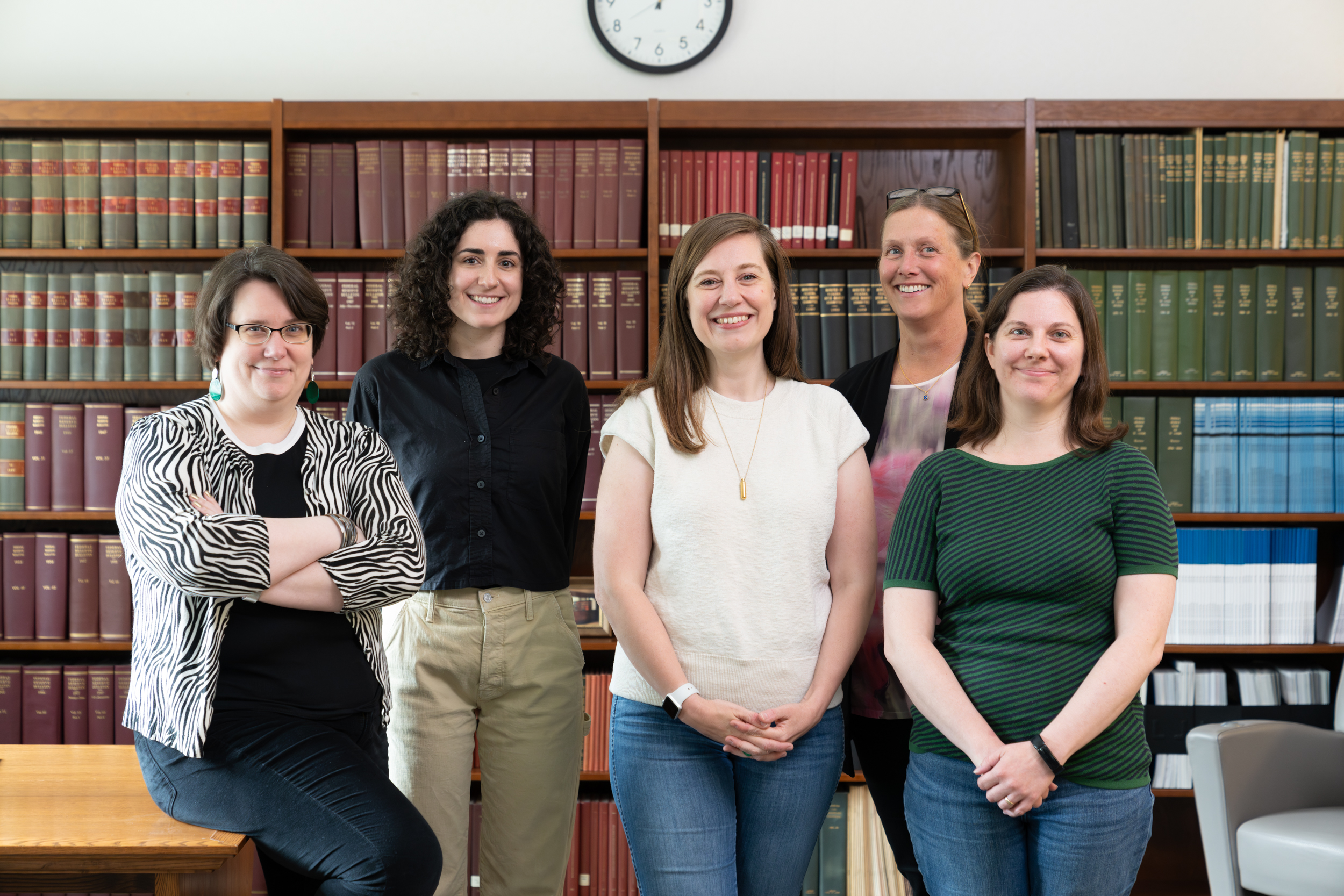
The Federal Reserve Archival System for Economic Research (FRASER) team of the Federal Reserve Bank of St. Louis is the 2024 recipient of the Distinguished Service Award given by the Society of American Archivists (SAA). The award recognizes an archives institution, education program, nonprofit organization, or government organization that has given outstanding service to its public and has made an exemplary contribution to the archives profession.
FRASER is a historical digital library made available by the Federal Reserve Digital History and Archives team at the Federal Reserve Bank of St. Louis. FRASER serves as both a subject repository with a focus on US economic history and an institutional repository of the Federal Reserve System. For more than twenty years, the FRASER team has worked to provide a holistic view of the history of the US economy and financial system by building a free digital repository and providing superior reference and outreach services. They take pride in their careful collections development, detailed metadata organization, and individualized reference assistance. In an online post, Peter Conti-Brown, associate professor of financial regulation at the University of Pennsylvania, refers to FRASER as “such a shining jewel for economic and financial historians that gets shinier every day."
The FRASER team excels at establishing collaborative relationships that benefit both the institutions involved and the general public through the resulting additions to the digital repository. As one supporter notes, “As a part-time archivist, I don’t have resources for extensive planning. I consider FRASER a ‘best practices’ model for what I am trying to accomplish in terms of organization and metadata.”
The selection committee was impressed with the FRASER team’s commitment to the archival profession over several years and their commitment to discoverability through the development of excellent tools and processes that serve their audiences at no cost.
Diversity Award: Christopher E. Haley
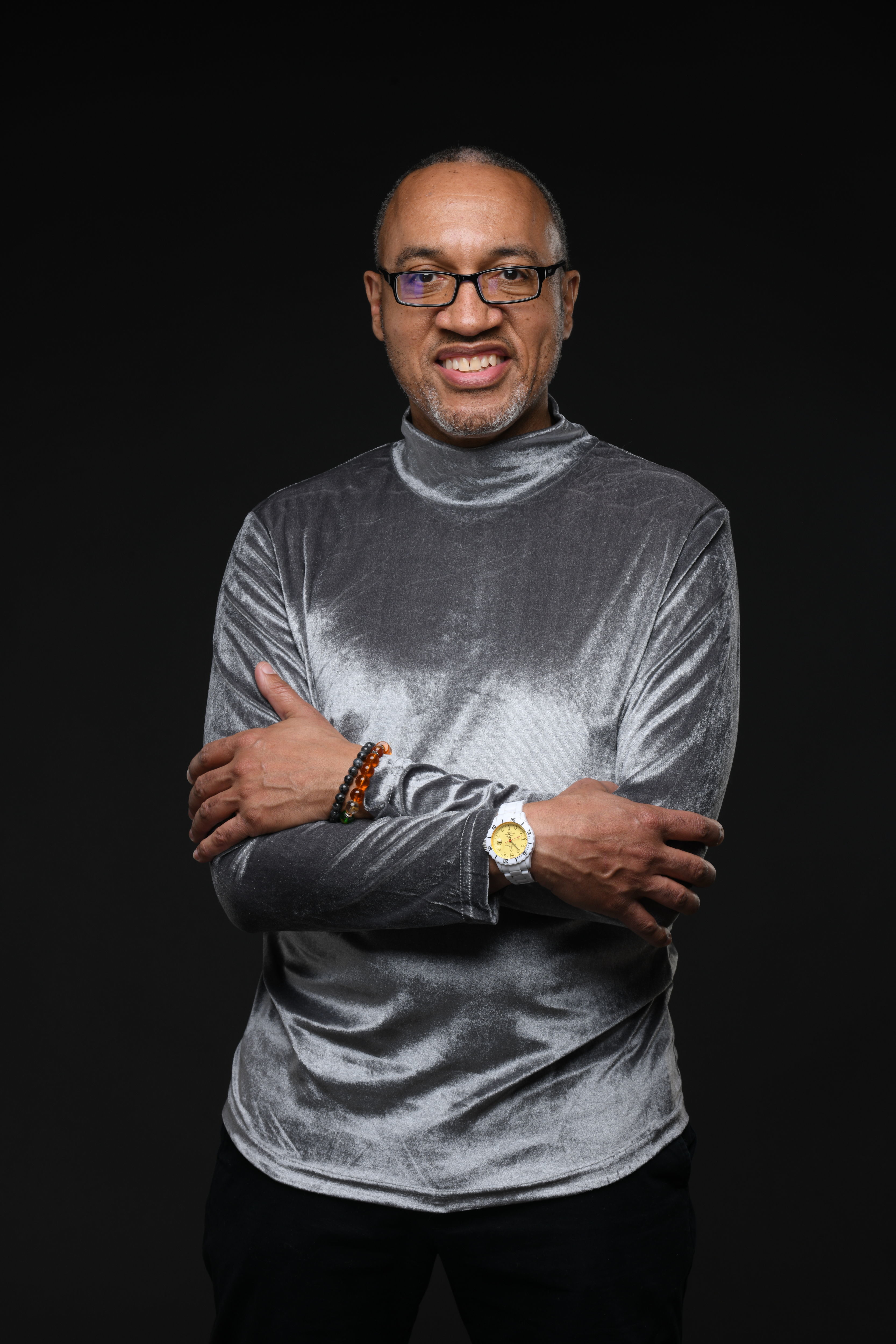
Christopher E. Haley, director of research, education, and outreach at the Maryland State Archives and founder of the Legacy of Slavery Program in Maryland, is the 2024 recipient of the Diversity Award given by the Society of American Archivists (SAA). The award recognizes outstanding contributions in advancing diversity within the archives profession, SAA, or the archival record.
With over thirty years of experience working with the historical records of African Americans in Maryland and beyond, Haley has made a profound impact on access to these records. As the founder and director of the Legacy of Slavery Program, he supervised the creation of a public database with over half a million fields of searchable metadata from census records, newspapers, court documents, manumissions, certificates of freedom, pardon papers, jail and penitentiary records, and cadastral maps. This database provides one location for researchers, scholars, genealogists, and more to locate primary sources on Black Marylanders that were previously inaccessible. Not only did Haley oversee the digitization of thousands of records and newspapers, as well as 111 original and microfilm volumes of manumissions and certificates of freedom, but he and his program also published resource guides for public use. Researching African American Families at The Maryland State Archives and the Guide to the History of Slavery in Maryland serve as important tools for researchers seeking to make the best use of archival resources to reveal diverse stories.
One of Haley’s nominators notes that he has made lasting contributions outside of the archives by meeting researchers, scholars, students, and more where they are. He worked extensively in education by partnering with administrative boards to develop course curricula and team-taught courses at the University of Maryland, and he partnered with the iSchool master’s program and the University of Maryland to make data about enslavement fully accessible and available for analysis by archivists and researchers. He is the longstanding director of the Utopia Film Festival and is an Emmy-nominated filmmaker for his work on Unmarked about African American cemeteries. His impact on future generations will last beyond his career. Another nominator states, “Chris always uses his voice to speak for diversity and inclusion, not just to call for it, but also to provide guidance and leadership allowing others to do the same.”
The Diversity Award was established in 2011. Previous recipients include Julie Varee, Gregory Hinton, and SAA Fellow Rebecca Hankins.
Donald Peterson Student Travel Award: Sandy Yang
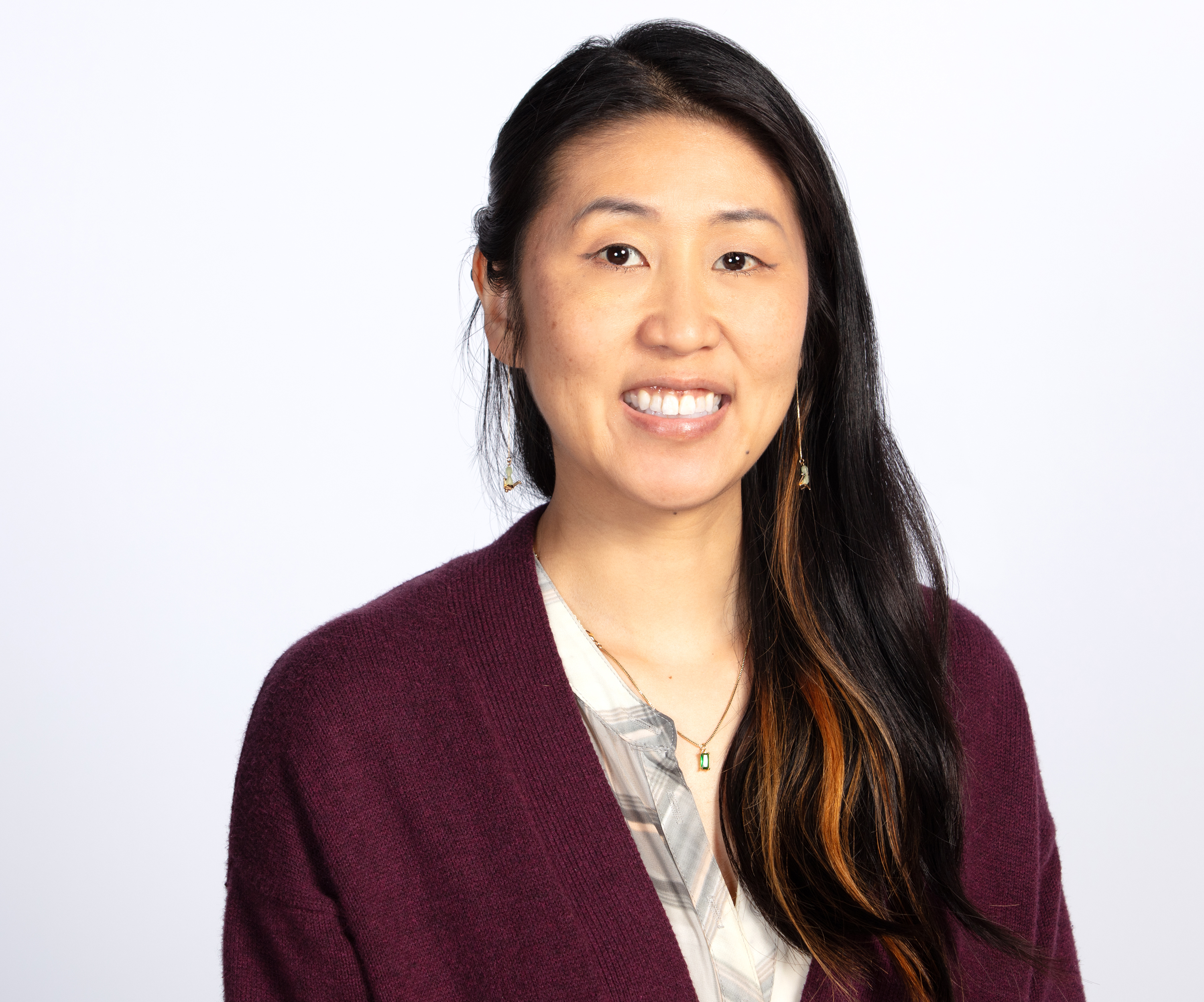
Sandy Yang, who is pursuing an MLIS with a major concentration in archival studies at the University of Alabama, is the 2024 recipient of the Donald Peterson Student Travel Award given by the Society of American Archivists (SAA). The award, established in 2005, supports students and recent graduates from graduate archival programs within North America to attend SAA’s Annual Meeting. The goal of the scholarship is to stimulate greater participation in SAA events, such as presenting research or joining a committee or section.
Yang is also a SJ4A fellow in the IMLS-funded Training of Community-Embedded Social Justice Archivists, also known as the Archival Studies Social Justice Master’s Scholarship Program. She holds leadership positions in student chapters through SAA, ALA, and ASIS&T at the University of Alabama. In her paraprofessional archives position at RAND, a nonprofit, nonpartisan research organization, Yang is actively involved in RAND's resource group for employees from Asian American and Pacific Islander communities. She helped improve documentation and awareness of underrepresented communities in RAND’s history, conducting extensive research in their archives that has been used in various outreach activities. One supporter stated, “Ms. Yang evidences the best of our profession’s aspirational values, with her conduct reflecting a general concern with supporting others in achieving their goals.”
Yang’s overarching research as a student focuses on gender representation in archival collections. Her current research explores the representation and service gaps within archival practices, with particular focus on enhancing women’s representation, utilization, and access within the Hauser RAND Archives. She recently presented a lightning talk on this topic at the 2024 SAA Research Forum. Yang will also co-present a poster with her cohort from the Archival Studies Social Justice Master’s Scholarship Program, showcasing the program’s distinctive curriculum, community-based practicums, and how their mentors have helped the students succeed.
The Donald Peterson Student Travel Award honors the memory of New York lawyer and philatelist Donald Peterson. Recent past recipients include Erika Alfieri (Florida State University), Katherine Schlesinger (University of Arizona), and Sidney Louie (University of Hawaiʻi at Manoa).
F. Gerald Ham and Elsie Ham Scholarship Award: Ashley Rockenbach
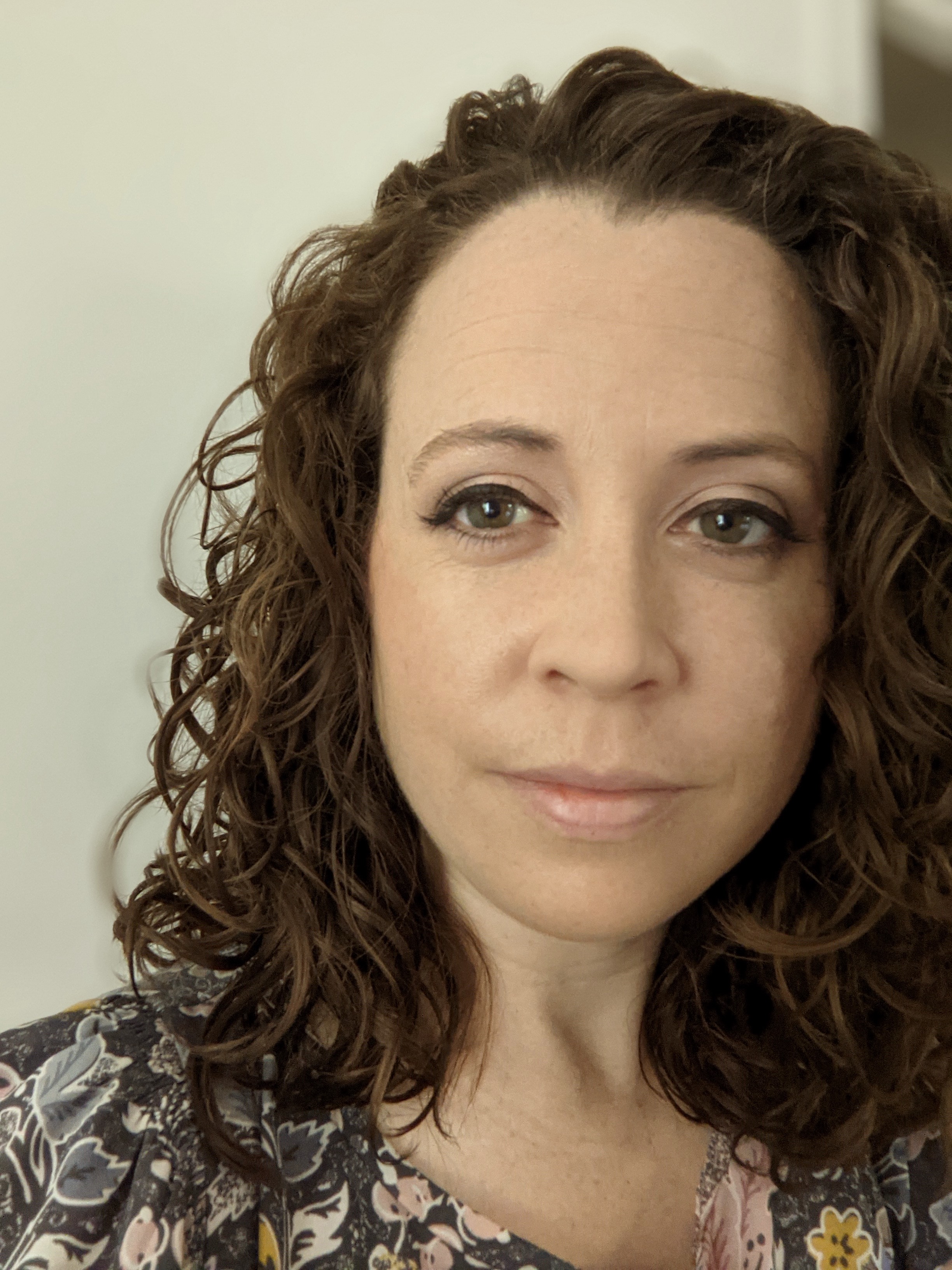
Ashley Rockenbach, who is enrolled in the MSLS program at the University of North Carolina at Chapel Hill with a specialization in archives and records management, is the 2024 recipient of the F. Gerald Ham and Elsie Ham Scholarship given by the Society of American Archivists (SAA). The $10,000 scholarship supports the graduate archival education of a student who is studying at a United States university program. Scholarship selection criteria include the applicant’s past performance in their graduate program in archival studies as well as faculty members’ assessments of the student’s prospects for contributing to the archives profession.
Prior to her archival graduate work, Rockenbach earned graduate degrees in African History at the University of Michigan. Starting in 2011 and continuing for three subsequent assignments, she joined teams of American and Ugandan graduate students working with the Ugandan National Archives to improve access to national and regional government records in the country. Rockenbach focused on oral histories in particular, believing in their power to change dominant historical narratives. From 2013 to 2015, she conducted eighty interviews with elderly members of the Rwandan diaspora in Uganda, providing pre- and post-interview consultations and delivering written transcripts and audio recordings to every participant. Of her archival and academic experience, she writes that it provides her with “a unique vantage point for thinking critically about the promises and pitfalls of the archives profession in the twenty-first century…and being part of challenging conversations about what reparative archival work might look like, both at home in the US and abroad.”
Rockenbach’s faculty nominator shared their belief that she “will make big contributions to our field, knows how to publish and circulate new knowledge, and will have a global perspective on archives.”
Fellow: Audra Eagle Yun
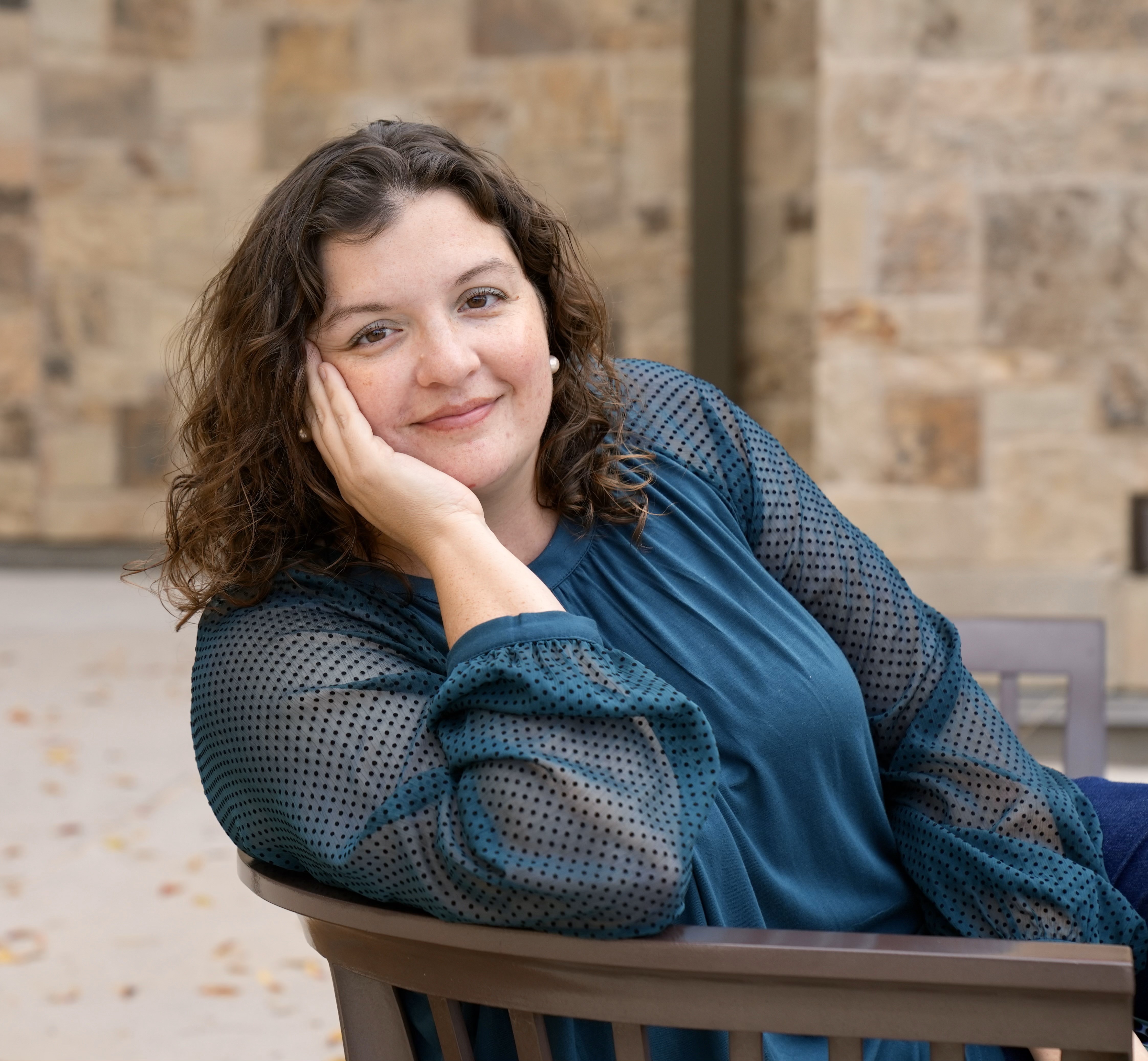
Audra Eagle Yun, head of special collections and archives and university archivist at the University of California Irvine (UC Irvine) Libraries, will be inducted as a Fellow of the Society of American Archivists (SAA) during an awards ceremony at the Annual Meeting of SAA in Chicago, IL. The distinction of Fellow is the highest honor bestowed on individuals by SAA and is awarded for outstanding contributions to the archives profession.
Eagle Yun, who holds a master of library and information science degree from the University of California, Los Angeles, began her career as a local history librarian and archivist in North Carolina, later serving as an archivist and then head of special collections and archives and university archivist at UC Irvine. Throughout her career, Eagle Yun has dedicated herself to the work of community-centered archives practice, advancements in archival collection management, and nurturing leadership in the field.
She co-led a research grant from the Institute of Museum and Library Services (IMLS) establishing quantitative and qualitative findings that articulated how participatory, student-centered approaches in building archives can transform engagement between ethnic studies, community-based archives, and academic libraries. She currently co-leads a grant from the Andrew W. Mellon Foundation to cultivate commitment among higher education institutions to community-centered archives approaches, solidifying the ability and responsibility of academic libraries to engage critically and contribute to social justice-focused scholarship, training, pedagogy, and partnerships in their communities. Her collaborative work has made UC Irvine a leader in furthering community-centered archives practice.
Eagle Yun’s writing stands out for its massive contributions to the archival profession. She has written widely on community archives practice, archival description, reducing backlogs, and ethical collection building. In 2021, SAA published Eagle Yun’s Archival Accessioning, a seminal work on a core component of archival processing. As editor, she provides a clear introduction to the practices and use of accessioning and brings together ten other voices to provide new perspectives and exercises. Eagle Yun is also a coauthor of “Guidelines for Efficient Archival Processing in the University of California Libraries” (2012; 2020) as well as a contributor to the 2019 Statement of Principles for SAA’s Describing Archives: A Content Standard (DACS). She is currently co-editing the third edition of Selecting and Appraising Archives and Manuscripts, part of SAA’s Fundamentals Series.
Eagle Yun’s committed and compassionate leadership is evident in the many projects she has undertaken. She participated in the 2013 cohort of the Archives Leadership Institute and currently serves as part of the Steering Committee for the 2024–2026 iteration of the program. Eagle Yun is also an active member of SAA. She has served on numerous committees and, in 2016, was elected to SAA Council. During the third year of her Council term, she served on the Executive Committee as well as the Working Group on Section Assessment and the A*CENSUS II Working Group. Presently, Eagle Yun is an active member of the Waldo Gifford Leland Award Subcommittee and numerous SAA sections. She often speaks at both national and regional archival meetings, providing insights into community-institutional partnerships, archival debt, and management of teams.
One supporter noted, “Audra is a talented archivist, a generous colleague, and a skilled theorist. She has an excellent grounding in archival theory and practice which has served to allow her to lead the call for evolution in the profession.” Another wrote, “Audra often serves as a guiding light in our profession. She is a person who truly lives her values, and it is inspiring to all of us around her to see her ethics and principles ignite her ambition.”
Fellow: Christina Zamon
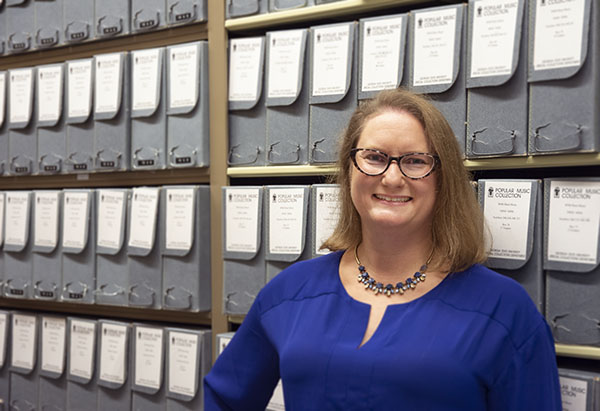
Christina Zamon, head of Special Collections and Archives at Georgia State University, will be inducted as a Fellow of the Society of American Archivists (SAA) during an awards ceremony at the Annual Meeting of SAA in Chicago, IL. The distinction of Fellow is the highest honor bestowed on individuals by SAA and is awarded for outstanding contributions to the archives profession.
A multi-hyphenate archival practitioner who has held many roles—including solo archivist, department head, educator, fundraiser, author, and mentor—Zamon earned her MA and MLIS from the University of Maryland. To solidify her professional trajectory in archives, she became a Certified Archivist through the Academy of Certified Archivists in 2005. In 2013, she demonstrated her trailblazing mentality by becoming one of the first Digital Archives Specialists through SAA.
Alongside these qualifications, Zamon has spent more than twenty years as a professional archivist, over the course of which she has served in increasingly responsible and challenging positions. She dove into all aspects of the profession as a solo archivist at the National Press Club (NPC) in Washington, DC. In this role, she largely established the archives as an institution adhering to best practices as defined by SAA and other professional organizations. Notably, she was instrumental in finding and acquiring a suitable space to house the NPC's archival records. Following her successful tenure at NPC, Zamon took on the role of head of Archives and Special Collections at Emerson College in Boston. No longer a solo act, she supervised the work of two full-time staff members as well as student workers and interns. Her work on the American Comedy Archives was pivotal in the establishment of Emerson's new Comedic Arts Major and Comedy Center. Since 2016, Zamon has led the Special Collections and Archives (SCA) team at Georgia State University. Most recently, Zamon successfully sought and acquired nearly $350,000 in funding from the National Endowment for the Humanities for a new 9,800 sq. ft. media preservation facility, significantly improving the library's ability to preserve fragile formats. In the past five years, Zamon has helped to secure over $1 million in grant funds for the department, increasing accessibility and preservation of important cultural heritage records.
Zamon’s success is not just limited to these places. Many archivists were introduced to her and her care and concern for archivists and archival work through her seminal work, The Lone Arranger: Succeeding in a Small Repository, published in 2012 by SAA. Created to help archivists working in small, underfunded repositories succeed, the guidance and support articulated in the text transcends institution types and has been used to build and sustain archival programs across the country, thus making it one of the most impactful SAA publications. It’s been so well received that Zamon was asked for a completely revised and new edition that is now re-written, expanded, and retitled. Alone in the Stacks: Succeeding as a Solo Archivist was released in May 2024.
Since joining SAA in 2001, Zamon helped formalize the Lone Arrangers Section, now the Solo Archivists Section. Additionally, she has served as the College and University Archives Section’s vice-chair and chair and co-chair/chair of the Awards Committee. Through these positions, she worked to have the section be responsible for the “Campus Case Studies” peer review process. More recently, Zamon has served on the steering committee and is currently the co-chair/chair of the Archives Management Section. In the past, she founded the Boston Area Archives and Records Consortium, bringing together archivists to support and share resources. She is also an active member of the Academy of Certified Archivists and has served in a variety of capacities with the Society of Georgia Archivists (SGA). Zamon served as the president of SGA in 2023. During her term, she helped move their strategic plan forward and restructured the organization to improve efficiency.
Her high degree of initiative, resourcefulness, commitment, and service to the field and SAA is best described by one supporter who wrote, “Christina is an absolute powerhouse who gives her all for this amazing profession.” Another added: “It would be easy to list Christina’s many professional accomplishments, but it would not do justice to the outstanding and long-lasting impacts that Christina continues to make on the archives profession.”
Fellow: Elizabeth Joffrion
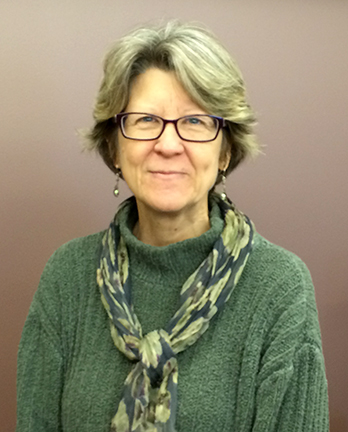
Elizabeth “Beth” Joffrion, director of archives and special collections at Western Washington University Libraries, will be inducted as a Fellow of the Society of American Archivists (SAA) during an awards ceremony at the Annual Meeting of SAA in Chicago, IL. The distinction of Fellow is the highest honor bestowed on individuals by SAA and is awarded for outstanding contributions to the archives profession.
Joffrion has been active in the archival profession since 1989. She holds an MLS with an archives focus from the University of Maryland, College Park and an MA in American history and archives and records management from the University of New Orleans. Joffrion has held professional positions at the Smithsonian Institution’s Archives of American Art; the National Portrait Gallery; North Carolina State Archives; and the Historic New Orleans Collection. She has taught graduate courses on archives and special collections at Catholic University and Western Washington University. In 1998, Joffrion accepted a position as head archivist at the Center for Pacific Northwest Studies at Western Washington University. Here, her leadership efforts resulted in the launch of the Northwest Digital Archives (NWDA) website, which became a key resource of the Orbis Cascade Alliance (now known as Archives West). At the time, it was only the second regional finding-aid database. She also forged key partnerships with other regional institutions and engaged in significant collections management, collections development, outreach, and community documentation projects.
In 2006, Joffrion became a National Endowment for the Humanities (NEH) Senior Program Officer in the Division of Preservation and Access, where she was responsible for the administration of multiple national funding programs that addressed critical problems in preservation and access to humanities resources found in library, archival, and museum collections. Joffrion then became director of Archives and Special Collections and associate professor at Western Libraries at Western Washington University. In this role, she supervised the libraries’ Special Collections, the University Archives and Records Center, and the Center for Pacific Northwest Studies.
Joffrion has served in leadership roles at national, regional, state, university, and community levels for more than two decades. She has served on conference planning committees, scholarship committees, and working groups for various organizations, including the executive committee for the American Library Association’s Rare Books and Manuscripts Section. She currently sits on the SAA Foundation Board of Directors. Joffrion has worked consistently with Native communities to promote and fund Indigenous-centered archival practices and projects, including advocating for the use of the Protocols for Native American Archival Materials and co-authoring the piece “Broken Promises: A Case Study in Reconciliation,” which received an honorable mention for the Margaret Cross Norton Award. Joffrion also co-authored the recent SAA Fundamentals book Advancing Preservation for Archives and Manuscripts, which delves into a broad variety of preservation topics, including social, cultural, political, and policy issues. Through her work at NEH and the SAA Foundation, Joffrion has been a key figure in diversifying methods for funding archivists.
In the multiple teaching positions Joffrion has held throughout her career, she is widely regarded as a generous and enthusiastic mentor. One supporter noted: “She both modeled effective and inclusive leadership as well as encouraging and guiding my own leadership skills. ... Beth has contributed so much to the archival world. At the center of that work is a collaborative spirit and the desire to increase opportunities for others.” Another supporter praised Joffrion for her dedication and devotion to the archival profession, stating that she is “consistent as a visionary and advocate for archives and special collections.”
Fellow: Jennifer Meehan
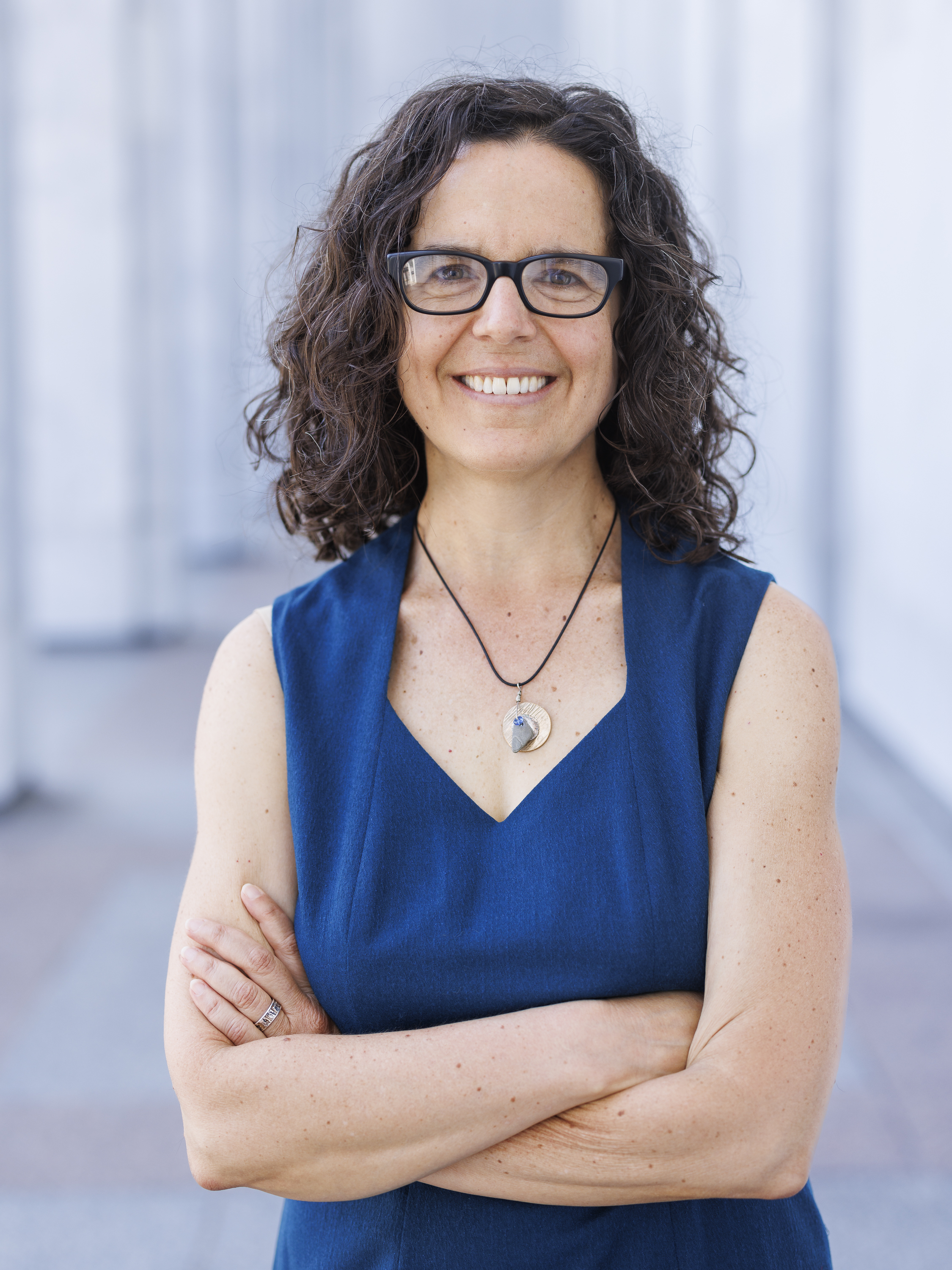
Jennifer Meehan, director of the Library of Congress’ Special Collections Directorate, will be inducted as a Fellow of the Society of American Archivists (SAA) during an awards ceremony at the Annual Meeting of SAA in Chicago, IL. The distinction of Fellow is the highest honor bestowed on individuals by SAA and is awarded for outstanding contributions to the archives profession.
Meehan, who holds a master of archival studies degree from the School of Library, Archival, and Information Science at the University of British Columbia, has been an advocate for increased accessibility and inclusion in the archives throughout her career. She has worked as a professional archivist in six different institutions over the past twenty years, beginning as a manuscript archivist at Virginia Tech. Meehan moved from there to a project archivist position at the Archives of American Art, Smithsonian Institution. She assumed her first supervisory role at Yale University’s Beinecke Rare Book and Manuscript Library, where she began as accessioning archivist and later took on the role of head of processing. From Yale, Meehan became associate director of the Stuart A. Rose Manuscript, Archives, and Rare Book Library at Emory University, directly overseeing the processing and cataloging, reference and instruction, born-digital archives, digitization, university archives, and records management operations of the unit. She made the move to repository leadership in 2019, becoming the head of the Eberly Family Special Collections Library at Penn State University, where she provided leadership and strategic direction for all of Penn State's archives and special collections activities. In 2022, Meehan joined the Library of Congress, where she continues to provide leadership for its six special collections divisions.
During her time as an archivist and administrator, Meehan has been an active contributor in many organizations, such as the Association of Research Libraries, the Big Ten Academic Alliance Heads of Special Collections, the Archives Council of the Atlanta Regional Council for Higher Education, and the Mid-Atlantic Regional Archives Conference.
Meehan’s impact is best demonstrated through her leadership, scholarship, and commitment. She has had a profound intellectual effect on the field through the quality, quantity, and breadth of her writing, and her work has been highly cited throughout the literature of archives and related fields. She has published five peer-reviewed articles in American Archivist, Archivaria, and Archival Science, and two essays in edited monographs. Perhaps her most important piece of professional writing is “Making the Leap from Parts to Whole: Evidence and Inference in Archival Arrangement and Description.” This American Archivist article has been a staple on the syllabi of archival education courses since its publication in 2009. Meehan’s work also pushes the profession to examine and understand the broader meaning of the archival endeavor, particularly evidenced in her article “Towards an Archival Concept of Evidence” (Archivaria, 2006) and her essay “Archival Intangibles: Empowerment Through Story and Meaning” (Archival Values: Essays in Honor of Mark A. Greene, 2019).
In addition to her writing, Meehan’s contributions to the profession are evident in her leadership in SAA. She was one of the instructors of the SAA workshop “Implementing More Product, Less Process,” which was offered nine times from 2010–2012. This workshop provided archivists with a new intellectual framework for assessing backlogs and processing projects, along with techniques for appraising, arranging, describing, and preserving archives. Meehan also served on the American Archivist Editorial Board for eight years and was elected to leadership roles as vice chair/chair for both the Description Section and the Research Libraries Roundtable. Meehan has been a part of many other committees including the 2017 Annual Meeting Program Committee, the Calvin Pease Award Subcommittee, the Description Section Steering Committee, the Leland Award Subcommittee, and the Membership Committee. As co-chair for ARCHIVES*RECORDS 2020, a fully virtual conference due to COVID-19, Meehan and the rest of the committee seized the opportunity to create a program that allowed the Society to convene productively online, addressing new issues related to working in a pandemic and confronting racial injustice as a much greater imperative for the field. Her leadership in this area represents another significant demonstration of Meehan's commitment to change and action in seeing archives help create a more just world.
As one supporter noted: “The breadth and depth of Jennifer’s contributions to the field are truly impressive, and she has an admirable track record of active, engaged, innovative, and visionary professionalism.” Another added: “Like many archivists, she thinks deeply about the work she is engaged in; what sets Jennifer apart, however, is her ability to articulate her ideas in accessible ways and her commitment to sharing her ideas widely through writing, teaching, and presenting.”
Fellow: Meredith Evans
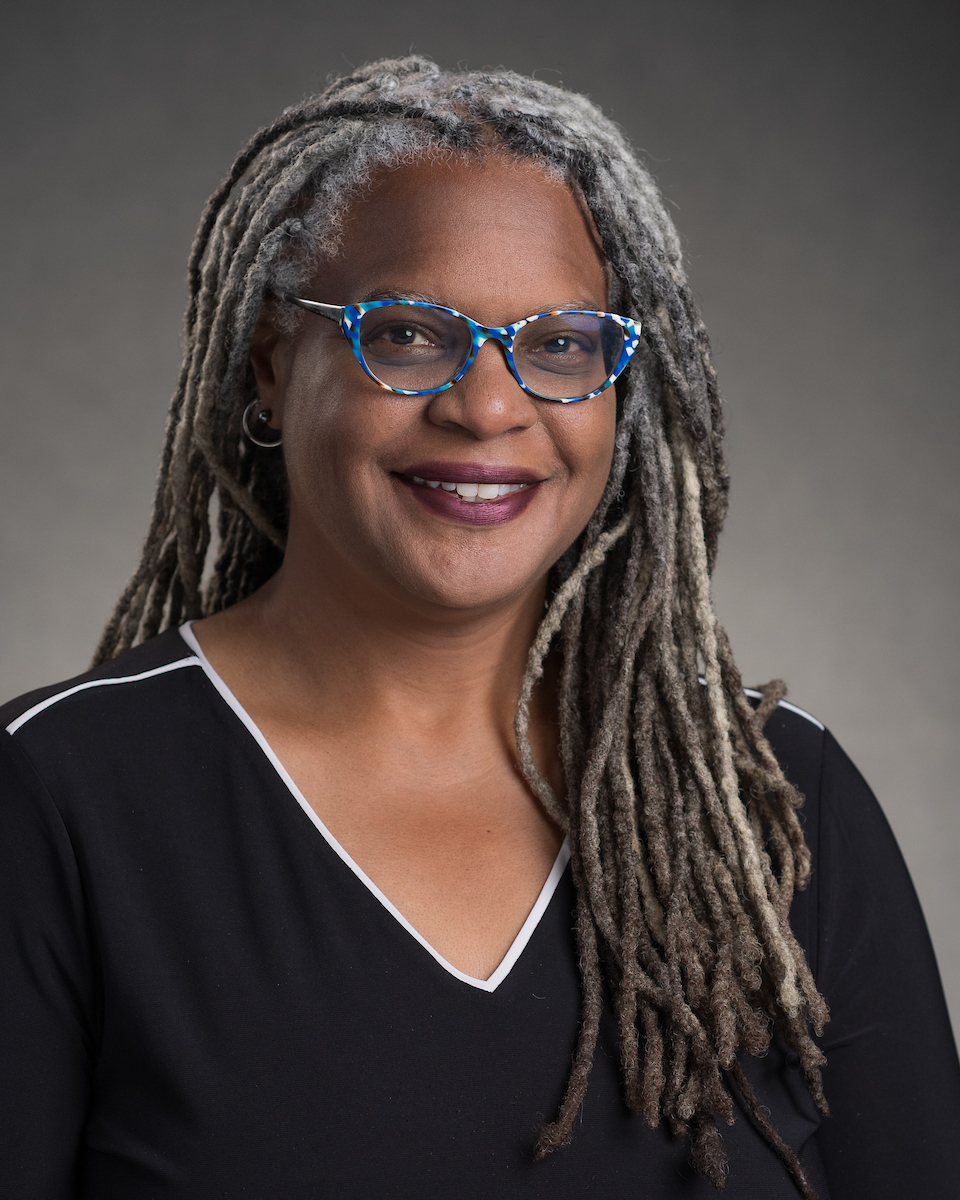
Meredith Evans, director of the Jimmy Carter Presidential Library & Museum, will be inducted as a Fellow of the Society of American Archivists (SAA) during an awards ceremony at the Annual Meeting of SAA in Chicago, IL. The distinction of Fellow is the highest honor bestowed on individuals by SAA and is awarded for outstanding contributions to the archives profession.
Evans, who holds PhD in library science from the University of North Carolina at Chapel Hill, has over twenty-five years of management and leadership experience. In addition to her doctorate, Evans earned a master of arts in public history from North Carolina State University and a master of arts in public history from Clark Atlanta University. She began her professional career as curator of printed materials in archives and special collections at the Robert W. Woodruff Library, where she collaborated with Boston University and the Howard Gotlieb Archival Research Center on a Mellon grant to process and digitize the papers and books of Morehouse College’s Martin Luther King Jr. Collection. Evans then became the director of the special collections research center at the Estelle and Melvin Gelman Library at George Washington University and later worked as the associate university librarian for special collections and digital programs at the J. Murrey Atkins Library at the University of North Carolina at Charlotte. In 2015, Evans became the director of the Jimmy Carter Presidential Library and Museum, where she collaborates with numerous stakeholders to create successful, engaging programming.
Evans’s dedicated and innovative leadership has shaped many careers and archival projects. Her work on advancing digital preservation, web archiving, and racial justice in the archives profession has been particularly influential. She was instrumental in the creation of Documenting Ferguson, a collaborative project from Washington University Libraries in St. Louis that aims to preserve the local and national history around the police killing of Michael Brown in Ferguson, Missouri, in 2014. This project, as well as the Documenting the Now project, have been foundational for the establishment of similar endeavors to ensure activism around racial justice is represented in the archives. Evans has also provided her expertise on numerous advisory boards. Throughout her career, she has served on the DocNow Advisory Board at Washington University, the RBM: A Journal of Rare Books, Manuscripts, and Cultural Heritage board, the Board of Visitors at the University of North Carolina at Chapel Hill, and many others. More recently, Evans served as an inclusivity consultant to the newly developed robotics archives at Carnegie Mellon University. Her invaluable insights led the team to a more collaborative and pragmatic approach managing the complexities of a multimodal robotics collection.
Within SAA, Evans has had a profound impact. She has served on the SAA Foundation Board of Directors, the A*CENSUS II Working Group, and the Committee on the Selection of SAA Fellows. In 2018, Evans became the 74th president of SAA. While terms typically last a single year, Evans stepped up to fill the role for a second term when the vice president/president-elect had to resign for professional reasons. Under her leadership, SAA facilitated numerous open conversations around archivists for Black Lives, instituted the practice of writing a DEIA statement for those seeking SAA Positions, implemented the A*CENSUS II, and much more. These diverse initiatives continue to have an impact, and many of them have been integrated into the Society’s DEIA work plan.
Evans has also been a guide for many other members of the archival profession. She has served as a mentor through SAA’s Mentoring Program and provided encouragement to other members seeking to serve in leadership capacities. As one supporter noted, “I would not be where I am today, were it not for the wise counsel, support, and friendship of Dr. Evans. I have no doubt that there are other archivists who would say the same thing.” Another supporter added, “She demonstrated genuine care and dedication, offering thoughtful advice tailored to my professional growth. Dr. Evans has consistently gone above and beyond to assist me, always making herself available despite her busy schedule.”
Fellow: Polina E. Ilieva
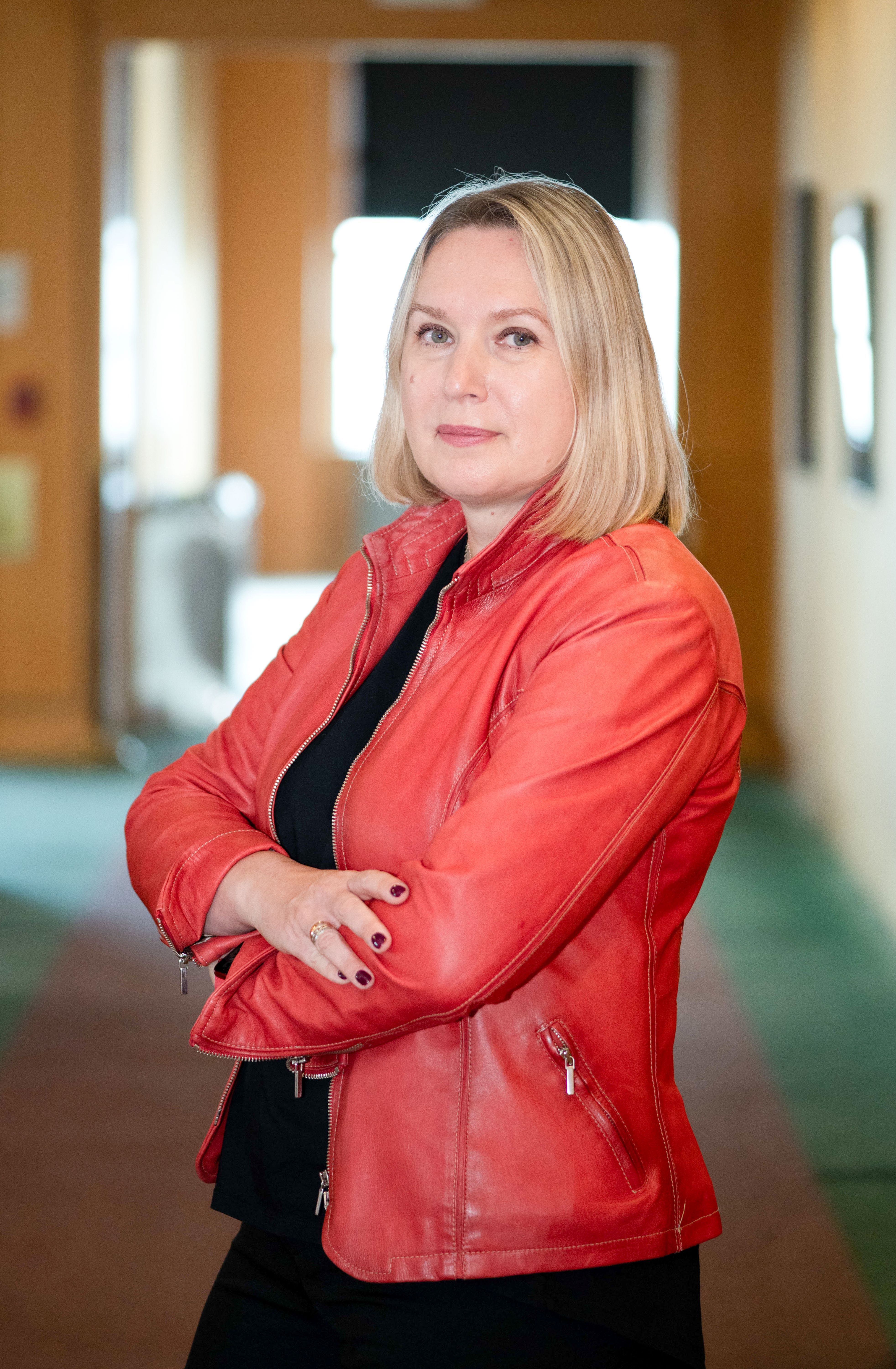
Polina E. Ilieva, associate university librarian for collections and university archivist at the University of California San Francisco (UCSF), will be inducted as a Fellow of the Society of American Archivists (SAA) during an awards ceremony at the Annual Meeting of SAA in Chicago, IL. The distinction of Fellow is the highest honor bestowed on individuals by SAA and is awarded for outstanding contributions to the archives profession.
Ilieva, who is a Certified Archivist with over twenty–five years of archival experience, received her MA in international relations and the international equivalent of a doctoral degree in history at the Moscow State Institute of International Relations (MGIMO). She began her career as a research fellow for international research at MGIMO, and after immigrating to the United States, she accepted a position as a research associate at the Center for Southeast Asia Studies at the University of California, Berkeley. In 2000, she became an archival specialist at the Hoover Institution Archives at Stanford University, where her work focused on documenting the Russian diaspora and later arranging and processing materials of the Radio Free Europe/Radio Liberty collection. Six years later, Ilieva accepted a position with Truth Tobacco Industry Documents (TTID, formerly known as Legacy Tobacco Documents Library) at UCSF. Since then, she has demonstrated a keen ability to take on complex and increasing responsibility. In 2021, Ilieva was appointed the associate university librarian for collections and university archivist. Her work at UCSF has resulted in an impressive expansion of the archives program and the continued growth of the UCSF Industry Documents Library (IDL). Initially focused on the tobacco industry’s impact on public policy and the lives and health of generations of Americans, that digital library has since expanded and now contains archives of other industries which influence public health, including the opioid, chemical, food, drug, and fossil fuel industries.
Ilieva’s commitment to diversity and accessibility is readily apparent in her mentorship and teaching work. From 2018 to 2020, she initiated and led two internship taskforces at the UCSF Library to provide equitable and paid opportunities for student workers. The taskforces created guidelines and best practices for the program, advocating for and securing permanent funding. As she strives to increase the diversity of archival collections, Ilieva is committed to including the voices of everyone affected by healthcare and institutional inequities. She developed a robust exhibition program at UCSF and launched a public lecture series that has researchers discuss their experiences with the University’s collections. In 2019, Ilieva initiated an Artist in Residence program to promote health humanities by exposing and repurposing historical materials. The first project from the residency, "The City is a Body: System Vulnerabilities in the time of COVID-19,” was presented by artist Farah Hamade in 2020. The program will host five artists beginning in July 2024. A successful grant writer, Ilieva obtained a National Endowment for the Humanities grant to unite three San Francisco institutions—UCSF, San Francisco Public Library, and the GLBT Historical Society—to more fully document the biomedical, social, cultural, and economic legacy of the AIDS epidemic. Most recently, Ilieva initiated the UCSF Digital Health Humanities program with the goal of providing educational resources to encourage and develop researcher capabilities using data science and techniques to analyze “archives as data.” She also collaborated with the UCSF faculty to develop and teach the ”Anatomy of an Archive” course to build competency in archival science and understanding of historic records for graduate students.
Within SAA, Ilieva has had a profound impact. She served on numerous committees and sections, and she received an appointment to the Committee on Ethics and Professional Conduct in 2020, first as a member and then as co-chair. During that time, the committee reviewed and revised SAA’s Core Values Statement and Code of Ethics. Ilieva is also active in the Society of California Archivists and has made significant contributions to the Medical Heritage Library (MHL). During her tenure as president of Librarians, Archivists, and Museum Professionals in the History of Health Sciences (LAMPHSS), Ilieva convened two significant committees: one to develop guidelines for handling hazardous materials in collections, and the second to focus on the ethical management of historical human remains in archives, libraries, and museums dedicated to the history of health sciences.
Speaking about Ilieva’s approach to her work, one supporter noted that she has “a fundamentally humanistic outlook and empathy that has prompted her to take on some complex projects that many might have tried to avoid.” Another supporter remarked, “Polina was a supportive and encouraging mentor who taught me many valuable lessons in leadership. She helped me develop skills that have been invaluable in my professional development, and she illustrated to me the importance of building community within the field and participating in professional organizations and community outreach.”
Fellow: Tawny Ryan Nelb
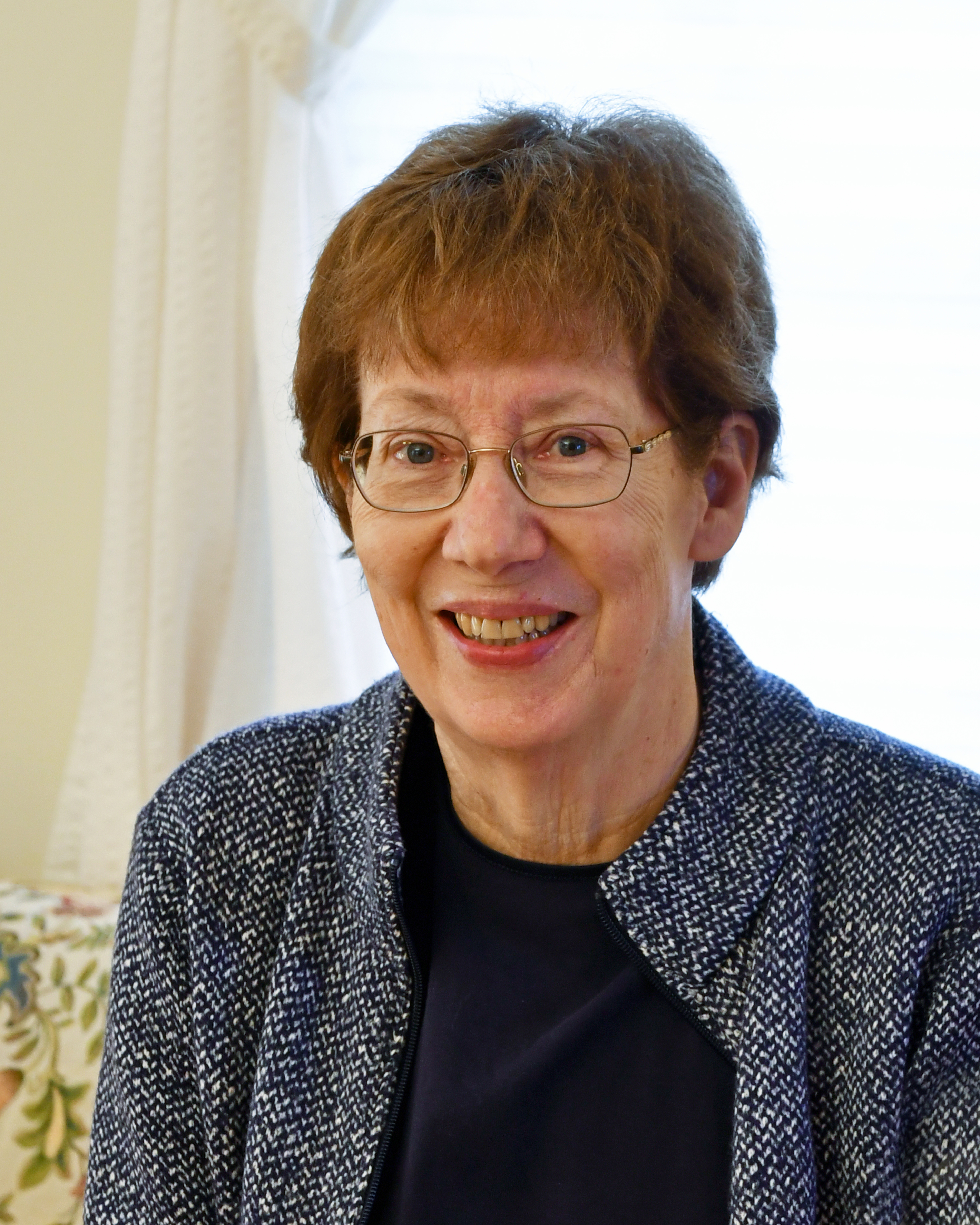
Tawny Ryan Nelb, president of Nelb Archival Consulting, will be inducted as a Fellow of the Society of American Archivists (SAA) during an awards ceremony at the Annual Meeting of SAA in Chicago, IL. The distinction of fellow is the highest honor bestowed on individuals by SAA and is awarded for outstanding contributions to the archives profession.
Nelb earned a BA in American Studies in 1975 from the University of Notre Dame in one of the first classes that included women. In 1983, she obtained an MA in American history. After serving as an archives and museum assistant at the Herbert Hoover Presidential Library from 1975–1976, Nelb spent the next decade holding increasing positions of responsibility at Yale University Library’s Manuscript and Archives department. Beginning as a public services assistant, she became a project coordinator of National Historical Publications and Records Commission (NHPRC) and National Endowment for the Humanities (NEH) grant-funded projects. Nelb eventually served as the head of the Yale Architectural Archives Project. In 1986, she became an independent archivist/historian. As president of Nelb Archival Consulting, she has provided collection needs assessment analyses, archives designs, processing plans, archives policies and procedures, disaster plans, oral history projects, and book and grant writing for clients including the Michigan History Center; the Museum of Fine Arts, Houston; UCLA; Independence National Historical Park in Philadelphia; and the new Indiana State Archives building design currently under construction. She also provides archival services for families and individuals.
Nelb's commitment to the profession and service to others reaches from the local to the national level. She is a past president of the Historical Society of Michigan and served for eight years on the governor's Michigan State Historical Records Advisory Board in Lansing, Michigan. She is a past member of the executive board for the Midland Center for the Arts and served on the advisory board of the Midland County Historical Society (MCHS) for eleven years before rejoining the advisory council in 2021. During the same year, Nelb received the “History Hero” award from the Historical Society of Michigan for her “extraordinary dedication to community service and contributions to Michigan history.” In 2023, she was one of the finalists for the Citizen of the Year award for her volunteer work in Midland, Michigan. Within SAA, Nelb has had a profound impact. She co-founded the Architectural Records Roundtable (now the Design Records Section), co-taught numerous architectural workshops for the Society, lectured at many conferences, and served for eight years on SAA’s Publications Board. Nelb has also mentored many archivists, helping to build the next generation of SAA professional leaders, and is recognized by her peers and her students as an excellent and creative lecturer.
Nelb is nationally recognized for having co-authored Architectural Records: Managing Design and Construction Records, which won the SAA Waldo Gifford Leland Award in 2007 for "writing of superior excellence and usefulness in the field of archival history, theory, or practice." Her writings have largely focused on promoting local history and advocating for the importance of archives in community preservation. She has authored 8 books or booklets, including The Tittabawassee Boom Company: A Mixed Blessing of the Lumbering Industry (2023), and over forty articles on local history or archival management.
One supporter wrote that Nelb’s “efforts to ensure the continued preservation, use and promotion of our local community's historical record has been tireless." Another complimented her work in May 2020 when MCSH's history center and archives flooded due to a dam breaking, stating that Nelb’s tireless volunteer work was instrumental in both immediate emergency recovery efforts and the long-term securing of a consultant to guide them through the creation of a new archive facility: "It is difficult to put into words the impact Tawny has had on her local community as a professional archivist and as a mentor. She has been an inspiration for what an archivist means to the community, advancing and advocating for the importance of archives in preserving a community's history and memory.”
Fellows’ Ernst Posner Award: Dana Reijerkerk and Caterina M. Reed
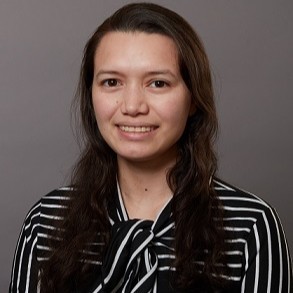
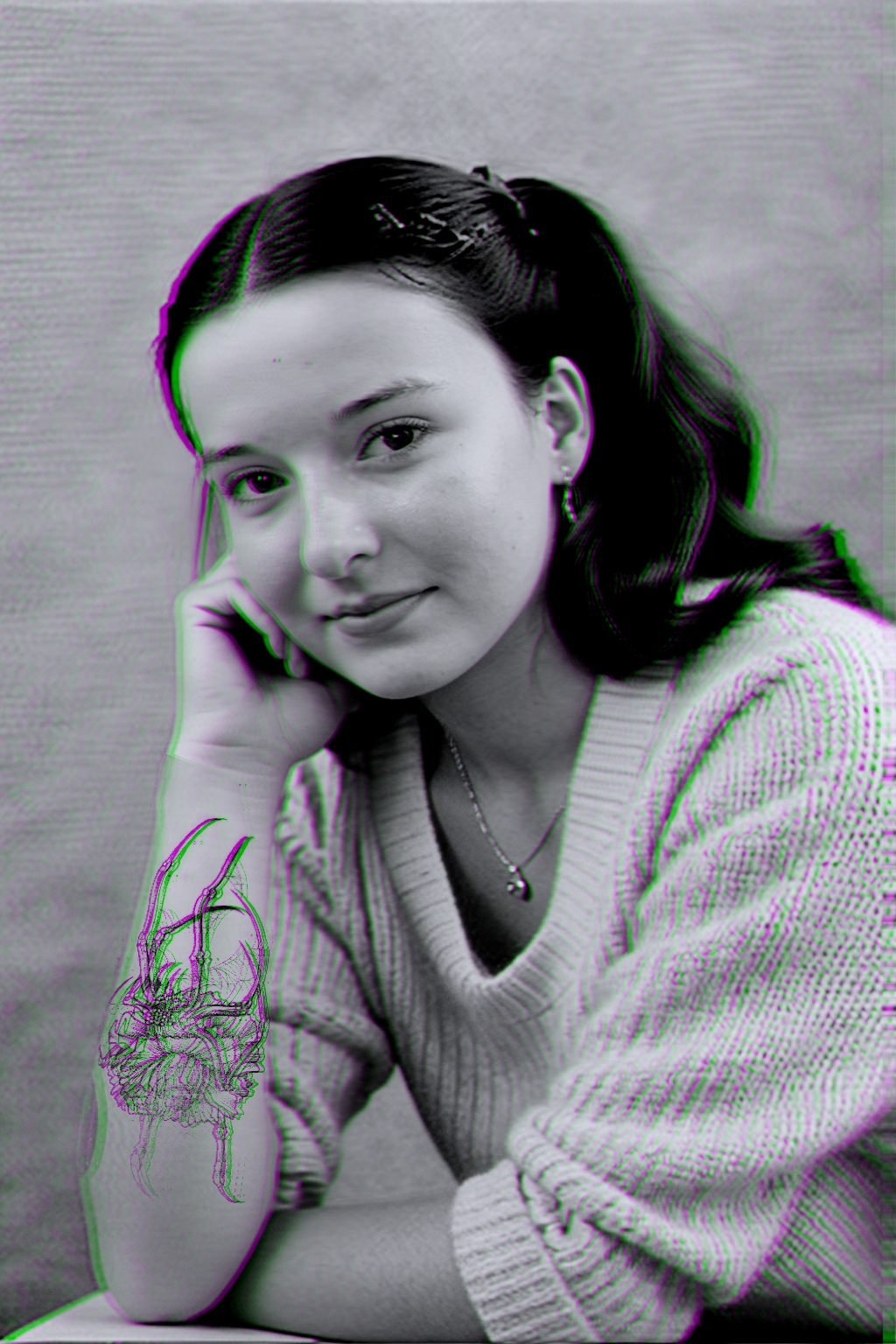
Dana Reijerkerk, freelance data consultant, and Caterina M. Reed, academic engagement librarian at Stony Brook University Libraries, are the 2024 recipients of the Fellows’ Ernst Posner Award given by the Society of American Archivists (SAA). The award recognizes an outstanding essay dealing with some facet of archival administration, history, theory, and/or methodology published during the preceding year in SAA’s journal, American Archivist.
Their article, “Archives, Decolonization, and the Politics of Tribal Sovereignty: An Examination of Accessibility Barriers to Indigenous Federal Recognition Research in the United States,” which appeared in the Fall/Winter 2023 issue of American Archivist (vol. 86, no. 2), discusses the difficulties that Native American/Indigenous/Tribal Communities have in obtaining tribal recognition from the federal government because of limited access to records. By laying out and explaining the complexities in the relationship between Indigenous peoples and the federal government, this article presents a cautionary tale for archivists whose collections contain Indigenous materials. It points out that although well-meaning, the practices and policies around these collections may do more harm than good by potentially distorting the record and hindering access. The authors explore a variety of practices and policies, including Traditional Knowledge Labels, digital repatriation, costs of research, reference interactions, slow archives, and cultural patrimony, successfully forming one consistent analysis of how archives can be complicit in Indigenous erasure.
The article offers excellent and thoughtful advice on how this situation can be ameliorated. The SAA Awards Committee hopes that this article can serve as a wake-up call to repositories working with records documenting Native American/Indigenous/Tribal Communities and encourages them to implement the practical suggestions made in this article.
Established in 1982, the award is named for Ernst Posner, an SAA Fellow and past president as well as a distinguished author. Recent recipients include Eliot Wilczek for “Archival Engagements with Wicked Problems” and Alston Brake Cobourn, Jen Corrine Brown, Edward Warga, and Lisa Louis for “Toward Metaliteracy and Transliteracy in the History Classroom: A Case Study Among Underserved Students.”
Harold T. Pinkett Student of Color Award: Shira Greer
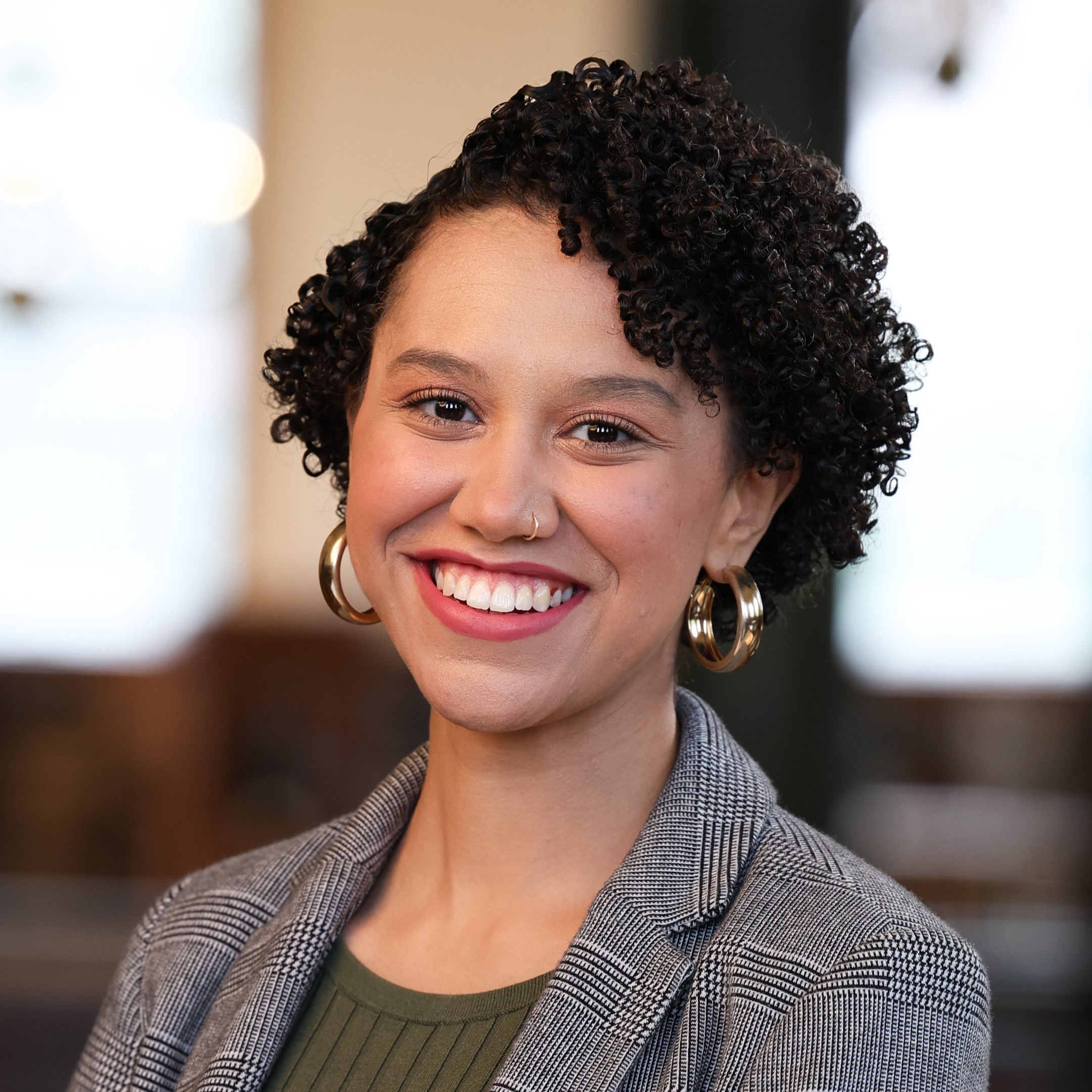
Shira Greer, who is currently enrolled in the MSLS program at the University of North Carolina (UNC) at Chapel Hill, is the 2024 recipient of the Harold T. Pinkett Student of Color Award given by the Society of American Archivists (SAA). The Pinkett Award was established in 1993 to encourage students of color to consider careers in the archival profession and to promote participation by people of color in SAA. The award honors archival pioneer Dr. Harold T. Pinkett, a dedicated SAA member who was the first African American to be appointed archivist at the National Archives, where he worked for more than 35 years.
At the University of Richmond, where she worked as a Race & Racism Project fellow in 2019, Greer conducted five oral histories with alumni of color. This work taught her the potential that archives offer in building intergenerational community, community collaboration, and empowerment. Her work with these individuals inspired her to become a campus activist and organizer and has helped her realize the potential that archives work has in helping marginalized groups understand and shape their own historical narratives. Now, as a graduate assistant for the Southern Historical Collection, Greer has helped to grow the On These Grounds database and public interface to share UNC’s history of enslavement. She has also processed the physical and digital materials of the Community-Driven Archives collection to provide access to information about the Southern Historical Collection’s community-driven archives work.
Greer has an outstanding academic record, and she is well on her way to making significant contributions to the profession and her community. As she wrote in her application letter, she looks forward "to meeting and learning from other archival professionals who are interested in creating and continuing projects that cultivate community and promote access to and engagement with archival materials."
J. Franklin Jameson Archival Advocacy Award: Dr. Elaine Carey
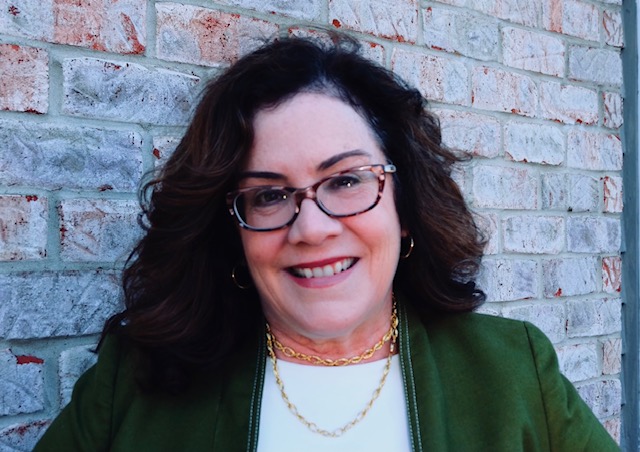
Dr. Elaine Carey, dean of the College of Arts and Sciences at Oakland University, is the recipient of this year’s J. Franklin Jameson Archival Advocacy Award given by the Society of American Archivists (SAA). Established in 1989, this award honors an individual, institution, or organization that promotes greater public awareness, appreciation, or support of archival activities or programs.
Much of Carey’s work has supported archival collections, research projects, and teaching collaborations. She helped develop the workshop “Family, Immigration, and History: Grade 10 Citizen Archivists in the Digital Age.” Funded by the National Historical Publications and Records Commission, the workshop was a collaboration with archivists, historians, and librarians offered to New York City teachers to create curricula and resources around the use of open digital archives. Her efforts have highlighted archives and their importance, especially in the context of social activism and justice, on both a regional and national level.
In 2011, Carey became the American Historical Association’s (AHA) Vice President for the Teaching Division, where she advocated for teaching and engagement with primary sources at the national level. She worked on AHA’s Tuning Project, an initiative that aims to clarify the importance of the study of history for students, employers, and the broader community. The project continues to shape history programs nationally by hosting deep conversations across institutions and education levels about enhancing historical thinking and research skills.
In 2001, she assisted Latin American solidarity groups in housing a collection of materials documenting social movements in Latin America; this collection became the James Guadalupe Carney Latin American Solidarity Archive (CLASA)
Carey’s active collaborations around and support of archival activities and programs have enduring and wide-reaching impact. As one supporter noted, “Carey’s long-term impact continues to be felt across interdisciplinary researchers with a focus on teaching social justice...Her ability to communicate with the general public about archival research and projects through different channels makes her a unique advocate that has had a long impact in raising awareness of the importance of archives with the general public, K-12 school spaces, and higher education.”
SAA's J. Franklin Jameson Archival Advocacy Award was established in 1989. Previous recipients include The West Virginia Feminist Activist Collection (WVFAC) Advisory Team; Brad Pomerance, CJ Eastman, and the Council of Independent Colleges' Humanities Research for the Public Good Program; and Tempestt Hazel and The Kitchen Sisters.
Josephine Forman Scholarship: Federica Alesiani
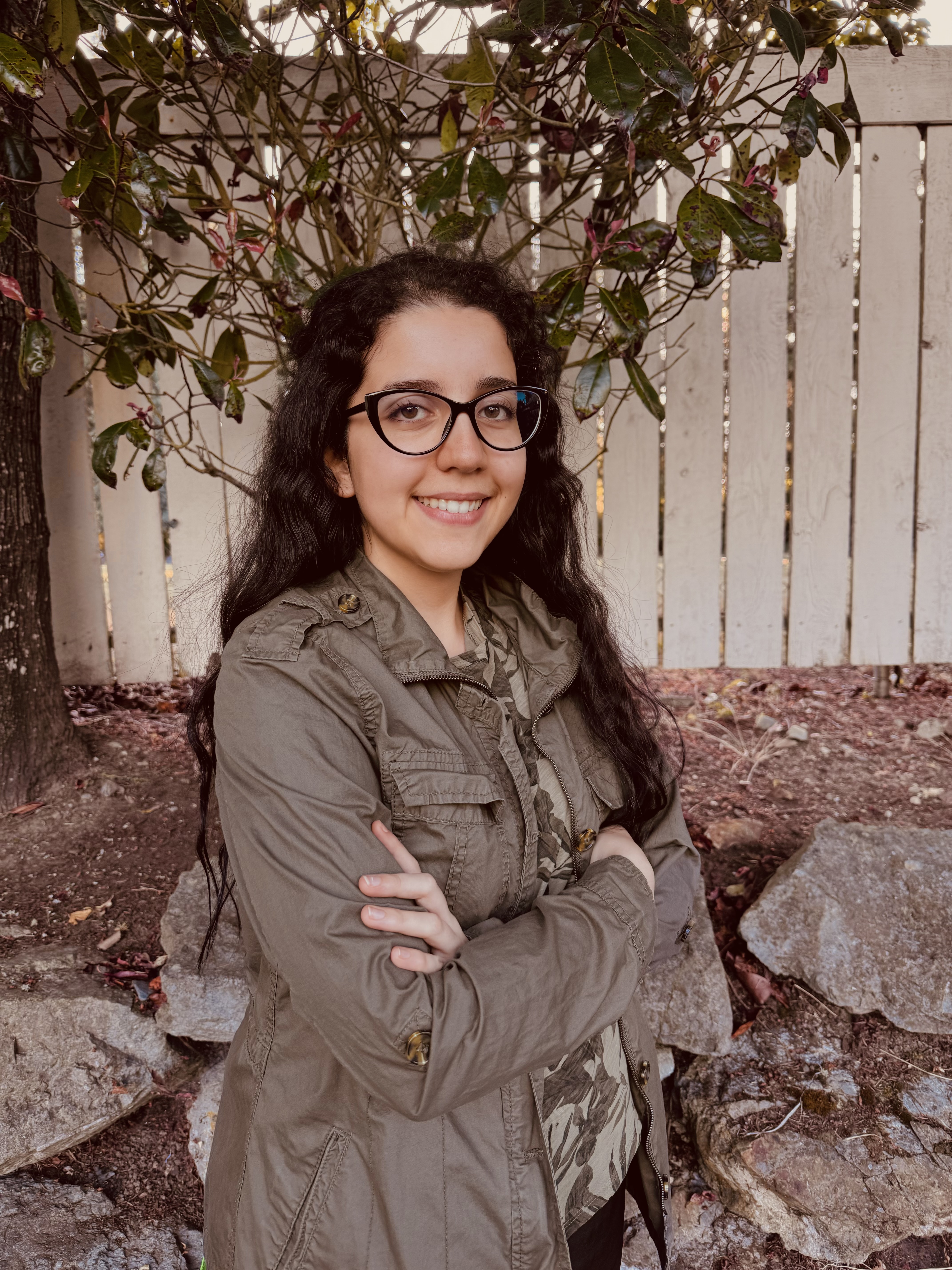
Federica Alesiani, who is pursuing a master’s degree in library and information science at the University of Washington, is the 2024 recipient of the Josephine Forman Scholarship, sponsored by the General Commission on Archives and History of the United Methodist Church in cooperation with the Society of American Archivists (SAA). The $10,000 scholarship provides financial support to students of color pursuing graduate education in archival science, encourages students to pursue careers as archivists, and promotes the diversification of the American archives profession.
Through her work, Alesiani has demonstrated an unwavering dedication to accessibility and diversity in archives. In 2021, she participated in a six-month Climate Exchange Program at the Federal University of Mato Grosso Do Sul in Brazil, where she submitted a data report on climate resources that were unavailable to students with disabilities in marginalized communities in São Paulo, Brazil. Alesiani then created a well-crafted video translating the report into American Sign Language (ASL). Their work as an ASL interpreter is also evident at the Jacobus tenBroek Library, where they provide access to archival records for individuals with hearing impairments.
Ultimately, Alesiani aspires to become a Digital Archives Specialist. She plans on pursuing a graduate internship at the George H.W. Bush Presidential Library, where she aims to refine digital design patterns for the collections. As one supporter notes, “Federica has consistently demonstrated an unwavering commitment to advancing the principles of diversity, equity, and inclusion within digital archival spaces to serve disabled students and youth.” Another supporter adds, “Federica’s methods of quick learning are significant, but their research acumen and practical contributions to the archives profession promise to inject innovation into the field while enriching their own learning journey.”
Mosaic Scholarship: Sage Innerarity
Sage Innerarity, who is pursuing a graduate degree at Simmons University’s School of Library and Information Science with a concentration in cultural heritage informatics, is the 2024 recipient of the Mosaic Scholarship given by the Society of American Archivists (SAA). The $5,000 scholarship is given to a student who demonstrates potential for scholastic and personal achievement and who manifests a commitment both to the archival profession and to advancing diversity concerns within it.
Innerarity is a Mellon Mays Undergraduate Fellow, spending her time in the program processing archival materials, developing curriculum for K-12 classrooms, and conducting oral history interviews with elders of the Miwok Indians at the Miwok Heritage Center in Ione, California. Innerarity subsequently used her experience working on these oral histories to craft her senior honors thesis, using a literary and historical approach to reframe California history from the Miwok perspective. After graduating, she was selected as the Post Baccalaureate Fellow in Native American Literature in the Robert Frost Library at Amherst College. In that role, Innerarity creates exhibits, designs website prototypes, and collaborates with local Tribal leaders to better describe, care for, and create access to archival collections. She is also heavily involved in campus and cohort communities at Simmons, acting as the ALA Student Chapter Coordinator and an SLIS Student Advisory board member. In these roles, she advocates for student needs, collaborates to develop programming, connects students with library professionals, and provides opportunities for students to build relationships with their cohort members.
One supporter wrote of Innerarity, “she is highly motivated to pursue community engaged research and develop culturally informed archival collections, and holds a remarkable capacity for creative, collaborative thinking.” Another adds, “It would be difficult to overstate Sage’s commitment to the concerns of Native communities.”
First awarded in 2009, the Mosaic Scholarship also provides recipients with a one-year membership in SAA and a complimentary registration to the SAA conference.
Oliver Wendell Holmes Travel Award: Jiarui Sun
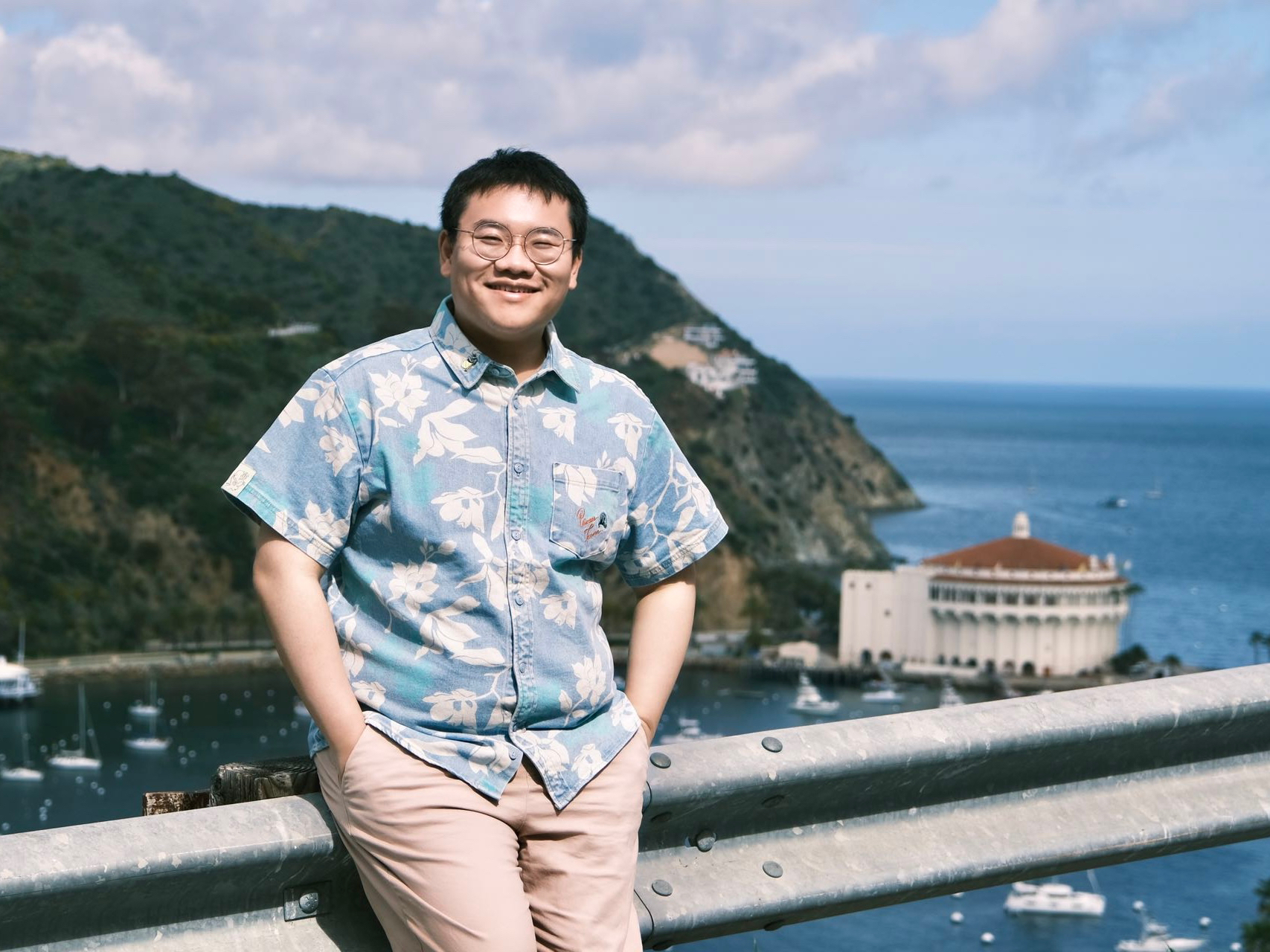
Jiarui Sun, who is completing doctoral studies in information studies at the University of California, Los Angeles (UCLA), is the 2024 recipient of the Oliver Wendell Holmes Travel Award from the Society of American Archivists (SAA). The award enables international archivists who are training or studying in the United States or Canada to augment their experience by attending the SAA Annual Meeting.
Through ongoing research and collaborative projects, Sun has immersed himself in both the theory and practice of archival studies. His research background includes involvement in multiple projects related to digital recordkeeping, government records, and other archival work on both the municipal and national levels. Portions of Sun’s research have already been published in archival studies journals in China. His current research focuses on archives and migration. This interdisciplinary inquiry is further enriched by his roles as a graduate student researcher at the UCLA Asia Pacific Center and as a graduate assistant at the UCLA East Asian Library. His research on archives and migration has been featured in peer-reviewed publications, presented at conferences, and supported by myriad professional organizations, including the Society of California Archivists, the Society of American Archivists, Beta Phi Mu International Honor Society for Library and Information Science, and the UCLA Asian American Studies Center.
Sun’s engagement with the archival field is manifest not only in his academic accomplishments, but also through his support of emerging professionals in the archival community as a mentor and educator. Sun worked as a teaching assistant for a foundational archival studies course at UCLA, a reviewer for the international journal Archival Science, and contributed to the Archival Education and Research Initiative (AERI), a collaborative effort among academic institutions to support the next generation of archival studies scholars. Support from the Holmes Award to attend the 2024 Annual Meeting will allow Sun to, as he wrote, “gain valuable knowledge and perspectives from fellow archivists, scholars, and community members, thereby enhancing my understanding of diverse approaches within the field.”
Established in 1979, this award honors SAA Fellow and past president Oliver Wendell Holmes, who served in many capacities at the National Archives. Previous award recipients include Samuel Njovana (Zimbabwe), Ricardo L. Punzalan (Philippines), Gerald Chaudron (New Zealand), and Patrick Ansah (Ghana) and Umi Asma’ Mokhtar (Malaysia).
Philip M. Hamer–Elizabeth Hamer Kegan Award: Atlanta University Center Robert W. Woodruff Library Archives Research Center
The Atlanta University Center (AUC) Robert W. Woodruff Library Archives Research Center is the 2024 recipient of the Philip M. Hamer and Elizabeth Hamer Kegan Award given by the Society of American Archivists (SAA). This award recognizes an individual, institution, or organization that has increased public awareness of archives documents.
The AUC Woodruff Library partners with member academic institutions, the largest consortium of historically Black colleges and universities worldwide, to preserve Black history through collaborative teaching and scholarship. In 2021, the family of the late civil rights icons Rev. Dr. Joseph and Mrs. Evelyn Lowery donated the couple’s archives to AUC member institution Morehouse College, with the AUC Robert W. Woodruff Library as its custodian.
“Working with the Lowery Institute and family members, we were able to fulfill the wishes of the late Dr. Joseph Lowery, who wanted his life’s work available to global scholars and students,” said Loretta Parham, CEO and Library Director at the AUC Woodruff Library. The Joseph Echols and Evelyn Gibson Lowery Collection encompasses more than 500 boxes of official and personal papers, photographs, documents, writings, speeches, notes, travel diaries, audio and video recordings, and mementos that chronicle the Lowerys’ impactful work alongside civil and human rights leaders. Processing the collection took two years of detailed preservation and description, including adding over 20,000 digitized items to the Woodruff Library’s public digital collection platform. To publicize the collection and make the Lowerys’ groundbreaking legacies known as widely as possible, the Woodruff Library team embarked on a publicity campaign of social media posts, promotional videos, articles, and presentations. These efforts culminated in 2023 in Lowery Community Day, a family-friendly event at the library featuring unique parts of the collection and community reflections from civil rights leaders that commemorated the opening of the archival collection.
This collection addresses a gap in the archival record and highlights an expansion of the archival record related to civil rights leadership and efforts after the 1960s. The AUC Robert W. Woodruff Library’s extensive digitization of the collection and robust outreach efforts ensure that this collection reaches well beyond AUC and illuminates the work of civil rights leaders, their profound sacrifices, and the enduring legacy of the Lowerys’ for years to come.
Sister M. Claude Lane, O.P., Memorial Award: Thomas J. McCullough
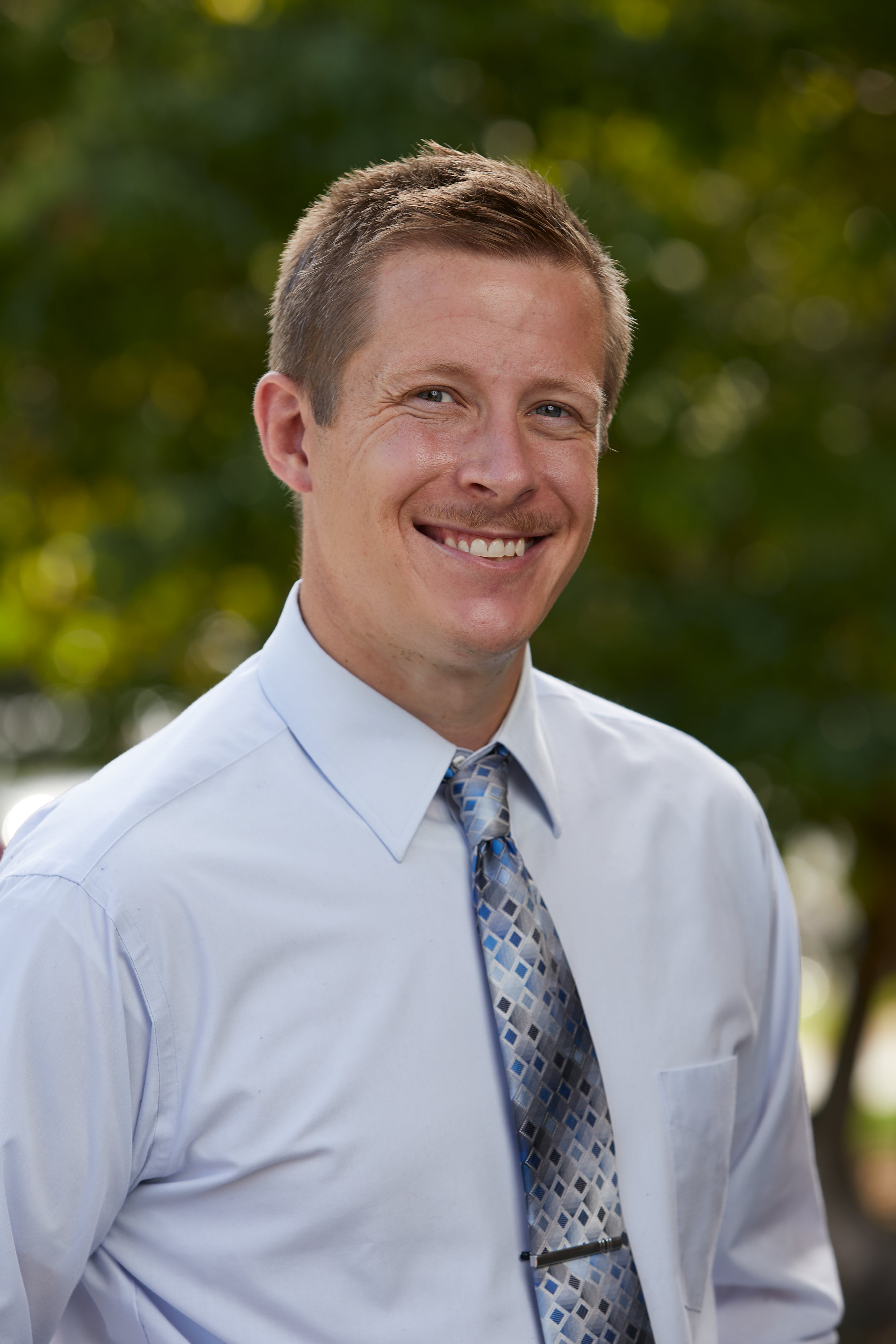
Thomas J. McCullough, assistant archivist for the Moravian Archives in Bethlehem, Pennsylvania, has been awarded the 2024 Sister M. Claude Lane, O.P., Memorial Award given by the Society of American Archivists (SAA) in conjunction with the Society of Southwest Archivists. The award honors an archivist who has made a significant contribution to the field of religious archives.
McCullough obtained his BA and MA from Shippensburg University of Pennsylvania and his MLIS from the University of Wisconsin-Milwaukee. He has devoted countless volunteer hours to the SAA Archivists of Religious Collections Section (ARCS) as a member of the Models and Resources Committee, which plans and delivers Lunch and Learn webinars and Archival Chat sessions. He also maintains the ARCS microsite. McCullough has served as volunteer editor of the Archival Spirit newsletter since 2016 and as editorial assistant for the Journal of Moravian History, a peer-reviewed journal published by the Pennsylvania State University Press. He is also a member of the Lehigh Valley Historical Maps Consortium and the Greater Lehigh Valley Museums and Libraries Alliance. His additional professional activities include serving as an adjunct instructor and contributing scholarly articles to peer-reviewed publications.
As Mary Grace Kosta, the chair of the ARCS Models and Resources Committee and a member of the ARCS Steering Committee notes, "We could not accomplish what we have over the past year and into the new year without Thomas. We absolutely rely on him to ensure the microsite is updated and that the Archival Spirit newsletter, our link with the entire section membership, is published throughout the year. Besides these critical tasks, he has gone the extra mile by volunteering more than any other committee member to serve as a webinar moderator and presenter. I have nothing but the deepest respect and admiration for Thomas and his commitment to religious archives." This sentiment is echoed by all the members of the ARCS Steering Committee.
Created in 1974, this award honors Sister M. Claude Lane, O.P., a Dominican nun who was the first professionally trained archivist at the Catholic Archives of Texas in Austin. Past recipients include Russell Gasero, retired archivist for the Reformed Church in America, and Carol W. Smith, archivist for Christ Church Preservation Trust.
Spotlight Award: Heidi Steed
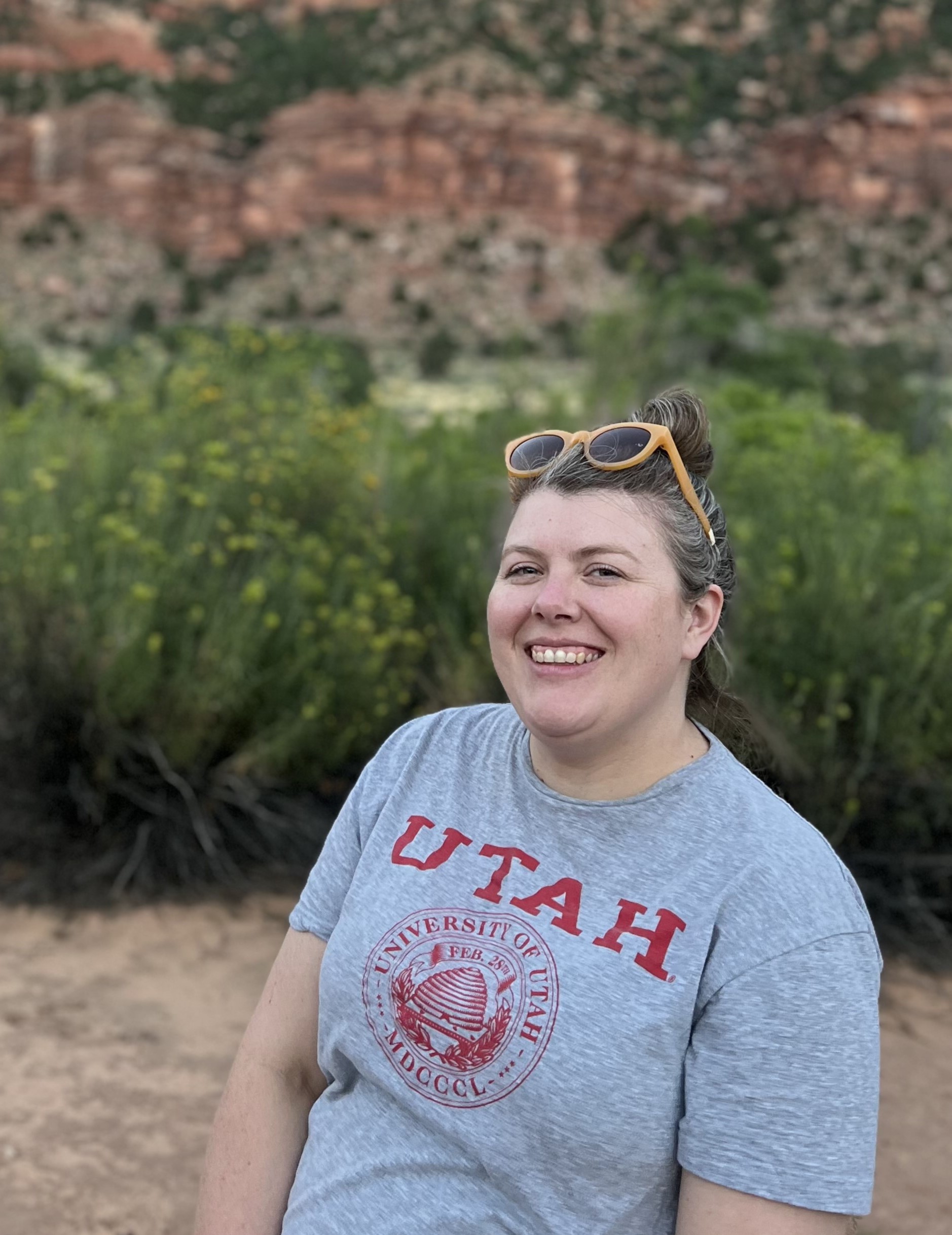
Heidi Steed, local government records specialist for the State of Utah Division of Archives and Records Service, is the 2024 recipient of the Spotlight Award from the Society of American Archivists (SAA). Established in 2005, the award recognizes contributions of individuals who work for the good of the profession and archival collections and whose work may not typically receive public recognition.
A graduate of the University of Utah, Steed has worked with the Utah Division of Archives and Records Service since 2017. She is passionate about community and exemplifies excellence in service, leadership, and commitment to supporting archives throughout Utah. Her supporters cite her outstanding organization and graphic design skills, ability to streamline processes, and service to her community in archives and beyond.
Steed was instrumental in planning the successful 2021 Best Practices Exchange Conference when COVID-19 forced a pivot to a virtual meeting. Her team’s territory includes all of Utah’s 29 counties and 254 municipalities; it is a large state with a small population, and the state archives handles a comprehensive range of practices that are generally handled by regions or counties in larger states. As Steed’s nominator writes, “She has worked hard to develop trust in the state of Utah's archival services among local governments...and performs extraordinary acts of service...literally going the extra miles to meet with people in person.”
Steed has researched and written local history stories based on Utah’s government records, including stories that highlight marginalized communities. She has created training curricula, guides, a flowchart illustrating the request process outlined in GRAMA (Utah’s sunshine law), and an Oregon Trail video game-themed blog post on how to start the records management journey. As a liaison between the State Archives and local governments, she undertook a General Records Retention Schedule Improvement project which aims to provide a more logical classification of records and a more intuitive approach for records managers. In policy discussions, she ensures that the needs of local governments are heard.
A team leader notes that Steed is “an ongoing advocate of practical iterative improvement in the way the Archives operates.” Her nominator agrees: “Heidi regularly undertakes these unglamorous and painstakingly meticulous policy projects because these invisible, behind-the-scenes improvements make the work for records officers across the state tremendously easier.”
Established in 2015, past recipients of the Spotlight Award include Georgina Tom (‘Iolani School), Lee Price (fundraising professional for cultural institutions), and Michelle Ganz (McDonough Innovation).
Waldo Gifford Leland Award: Eira Tansey
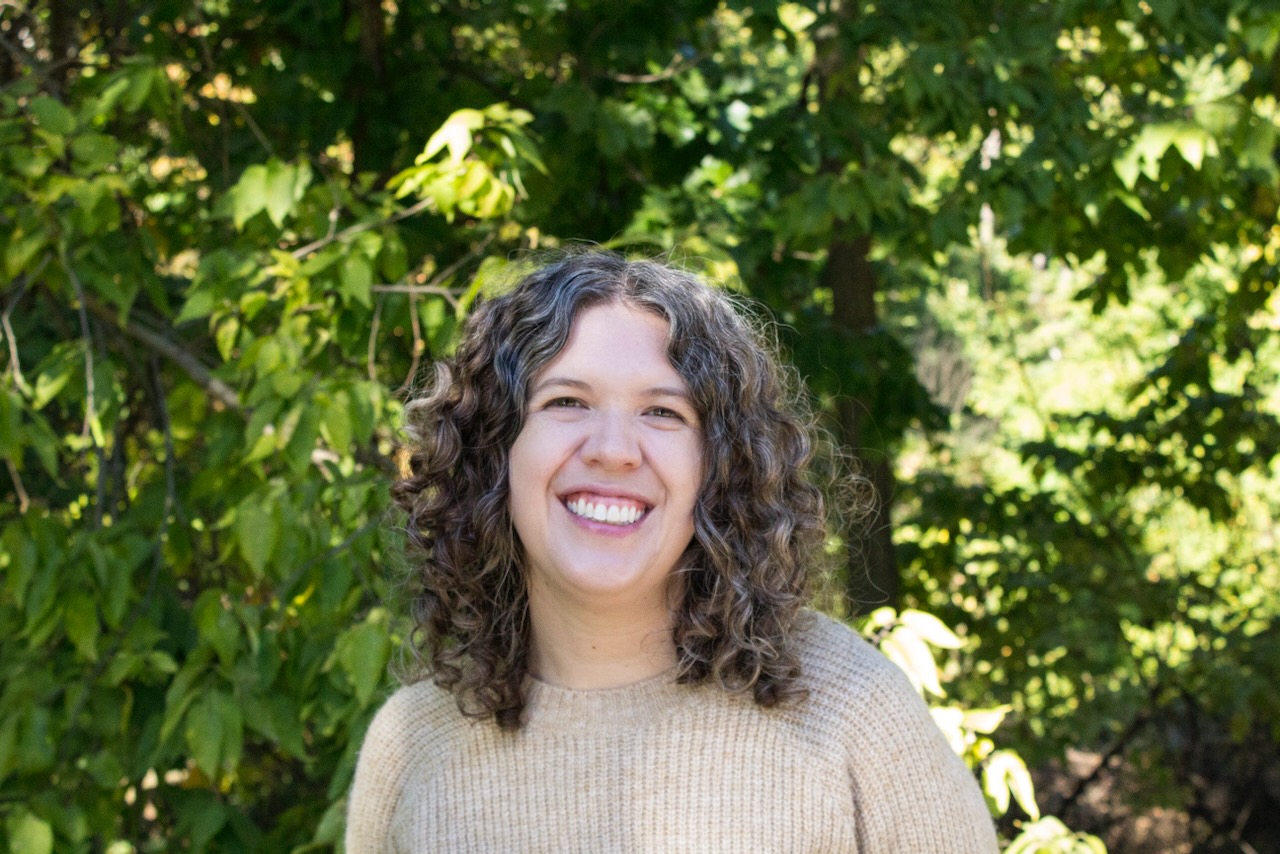
Eira Tansey, founder and manager of Memory Rising, is the 2024 recipient of the Waldo Gifford Leland Award given by the Society of American Archivists (SAA) for her work A Green New Deal for Archives, published by the Council on Library and Information Resources in 2023. The award is given for writing of superior excellence and usefulness in the fields of archival history, theory, and practice.
For over a decade, Tansey has been a leading voice among American archivists on the topic of climate change, raising awareness of its impact on archives and archivists through her research and advocacy. A Green New Deal for Archives is the culmination of these intellectual contributions. The book provides a framework for encouraging policymakers and funders to support archival institutions as core elements of public infrastructure. This carefully researched treatise sets forth an ambitious, expansive, and actionable vision for addressing chronic understaffing and climate change in the archives field.
A Green New Deal for Archives, as one nominator stated, is “an exceptional contribution to the professional literature that interweaves recent urgent professional discourse about equity, justice, labor, funding, and climate change.” It is a timely, compelling, and intellectually rigorous work that applies to archives and archival workers of all kinds, envisioning a path forward during tumultuous times. Tansey’s public policy manifesto is a “generous gift to our field” that shows promise which will resonate for years to come as “one of our most important pieces of professional literature.”
Established in 1959, the Waldo Gifford Leland Award is named for one of North America’s archival pioneers and SAA’s second president. Past recipients include James Lowry for Disputed Archival Heritage (Routledge, 2022); Jason Lustig for A Time to Gather: Archives and the Control of Jewish Culture (Oxford University Press, 2021); and Cheryl Oestreicher for Reference and Access for Archives and Manuscripts (Society of American Archivists, 2020).